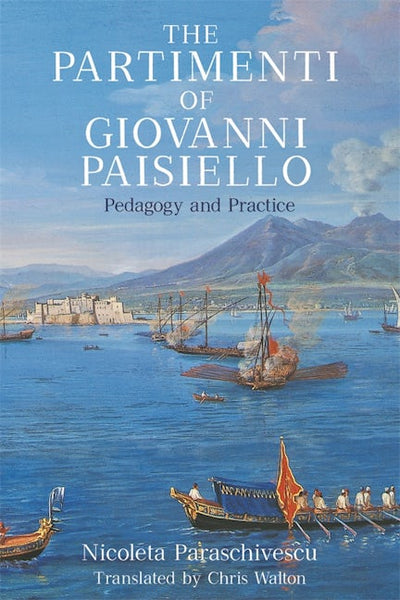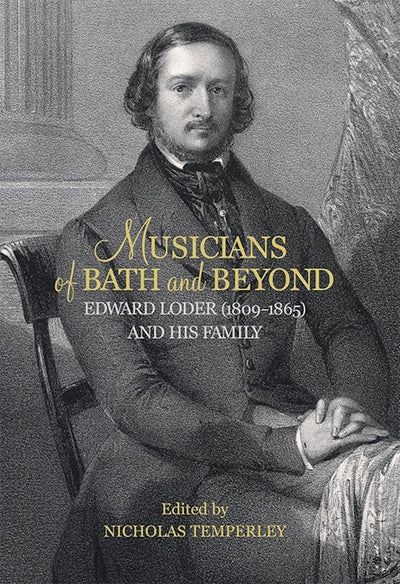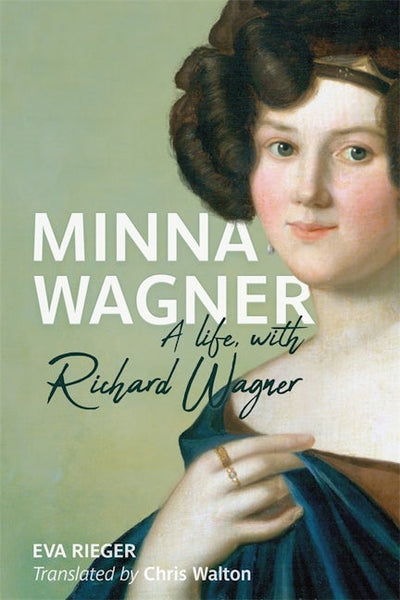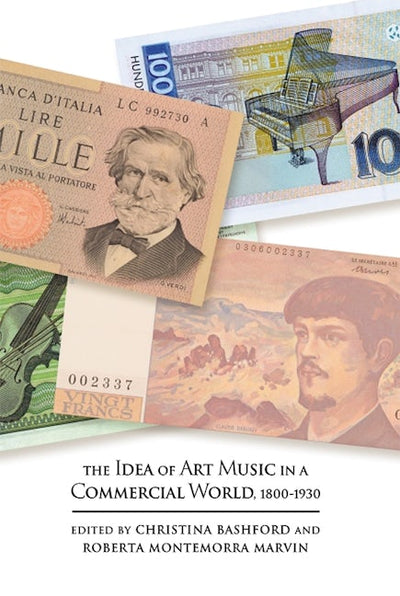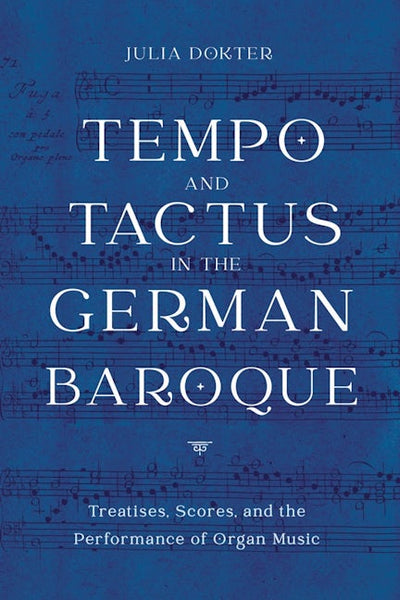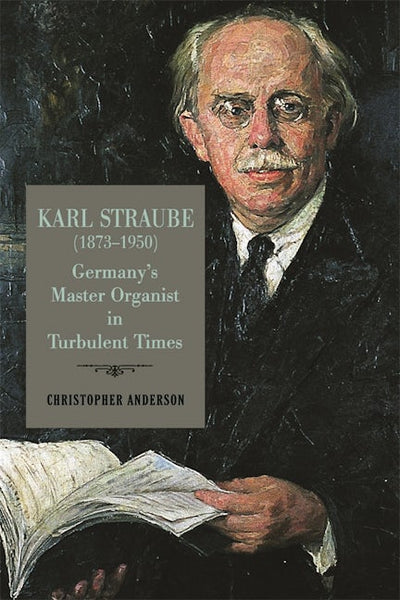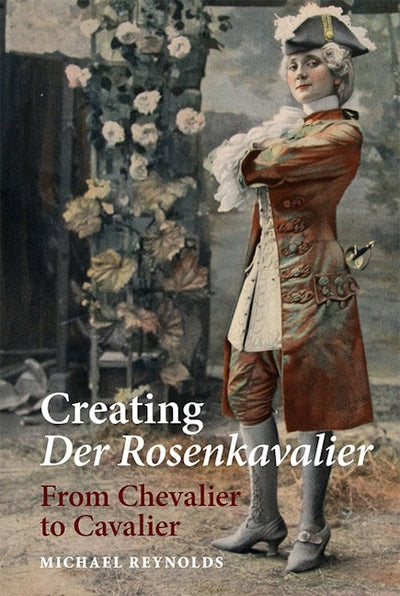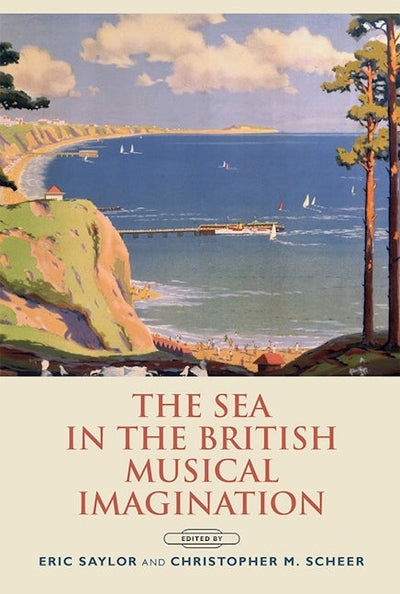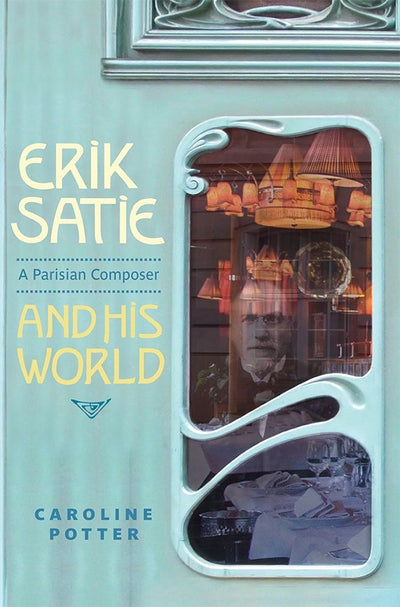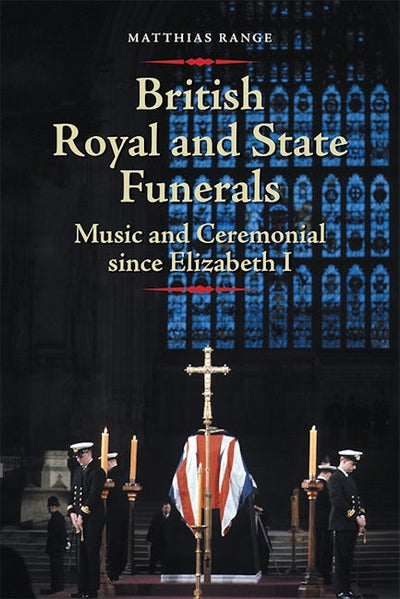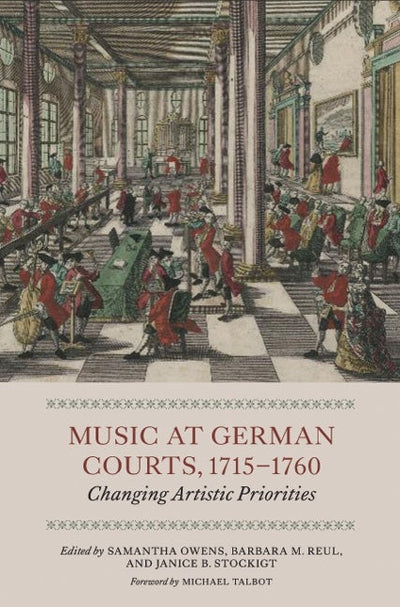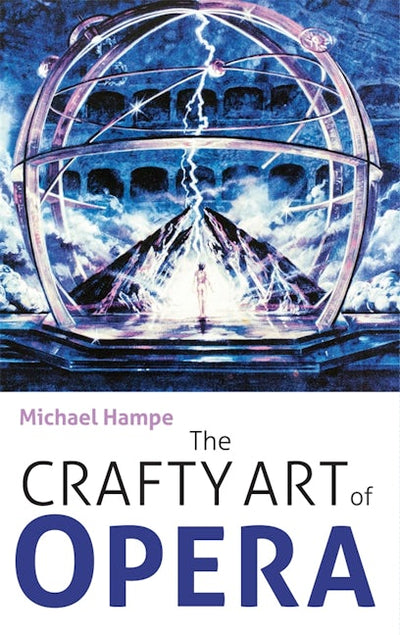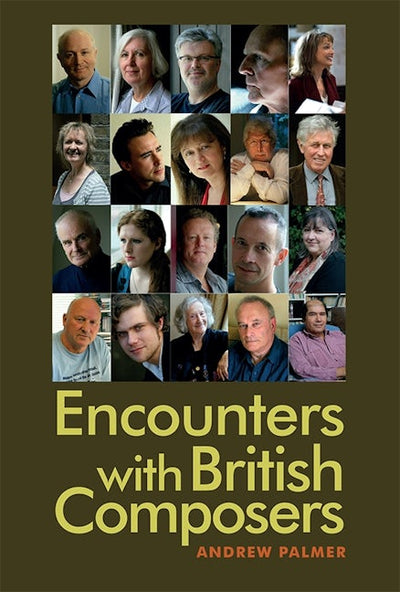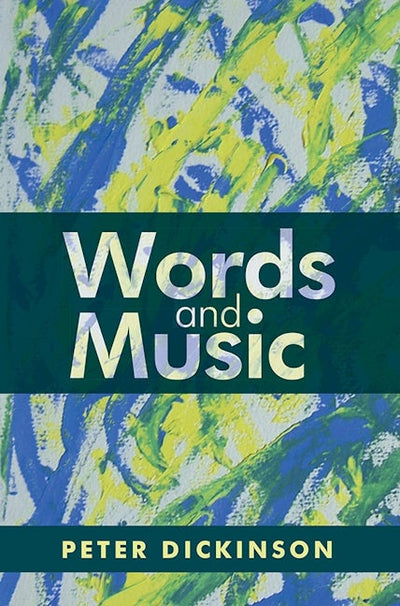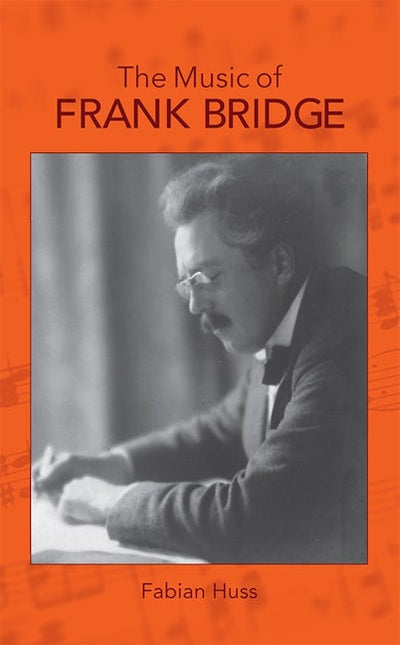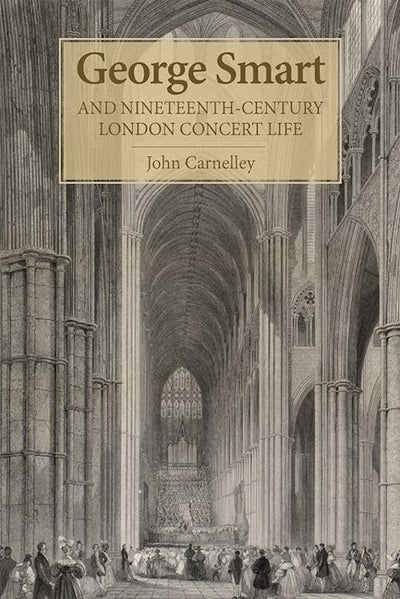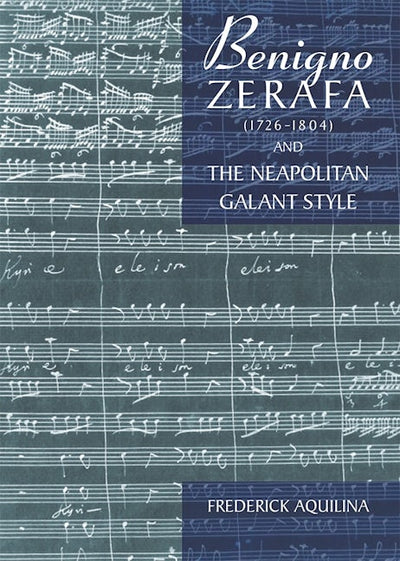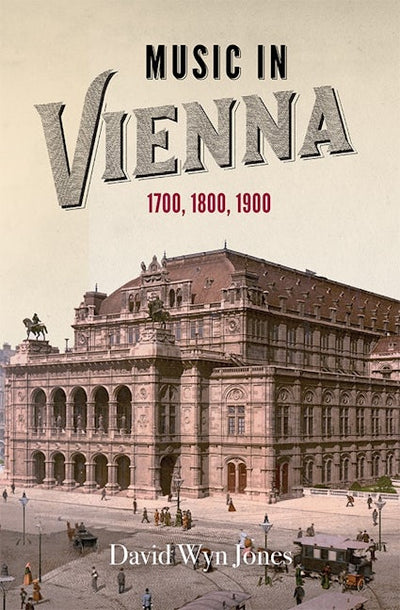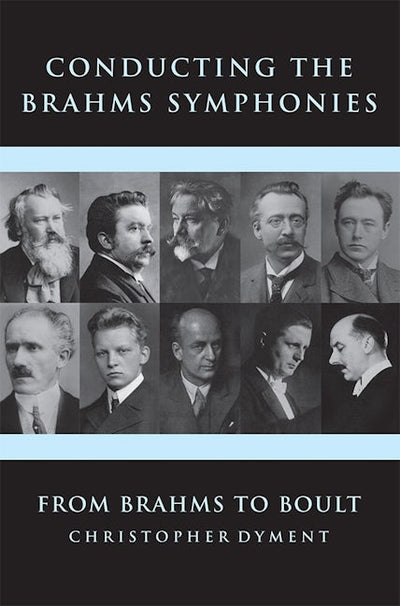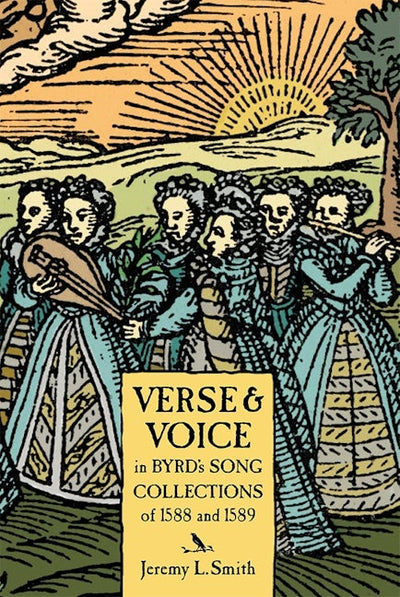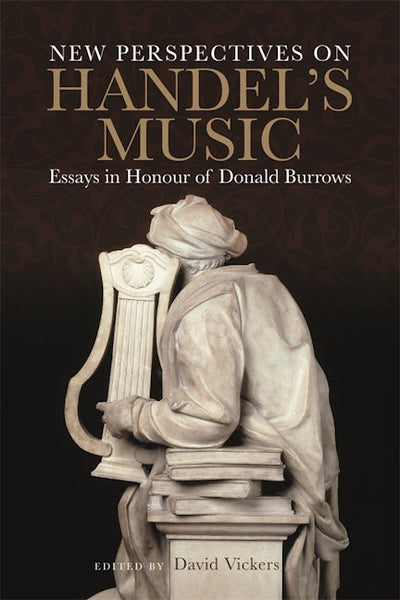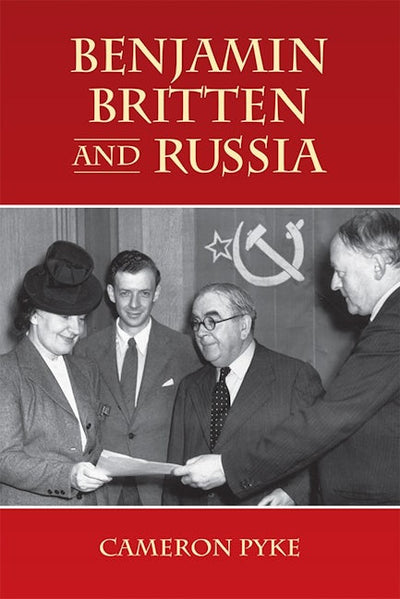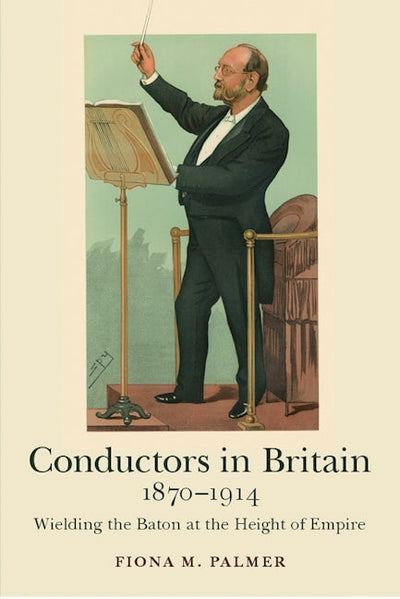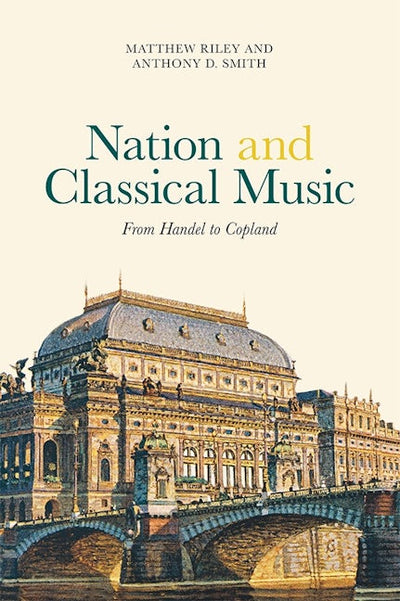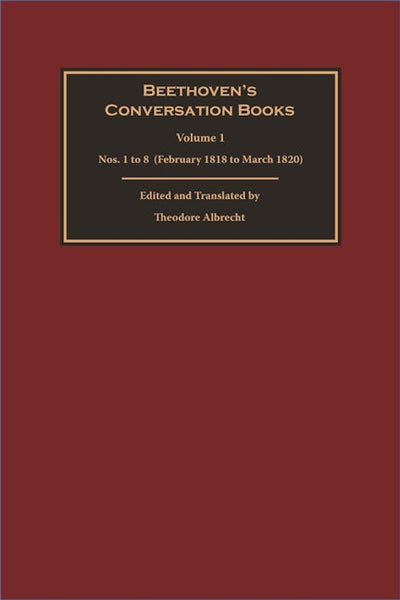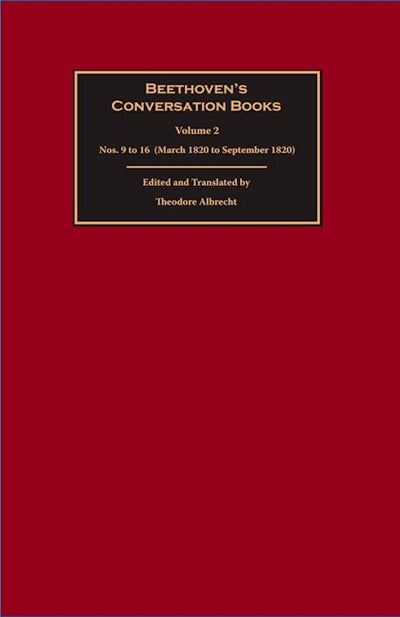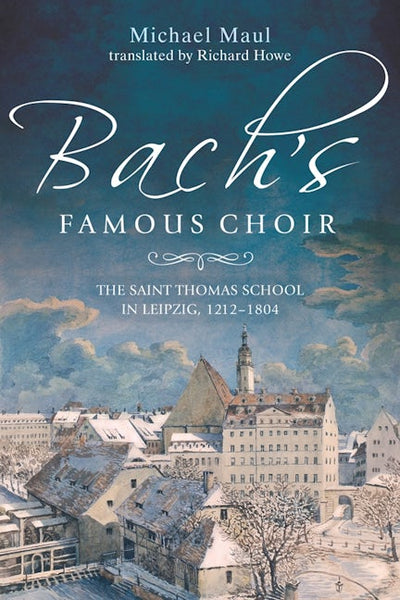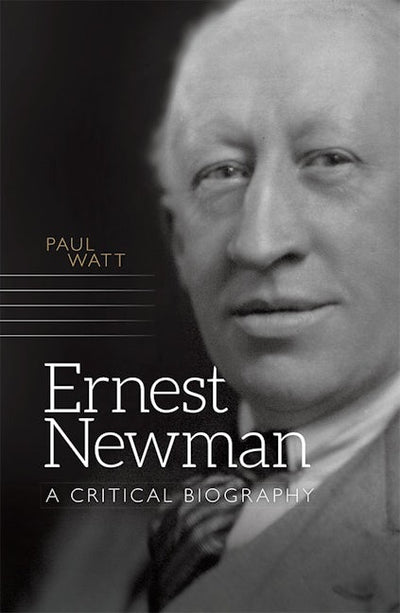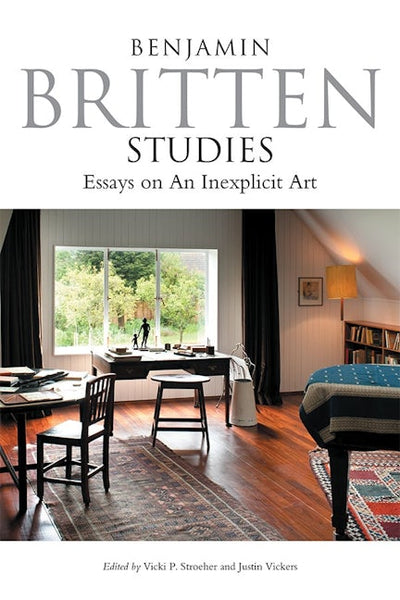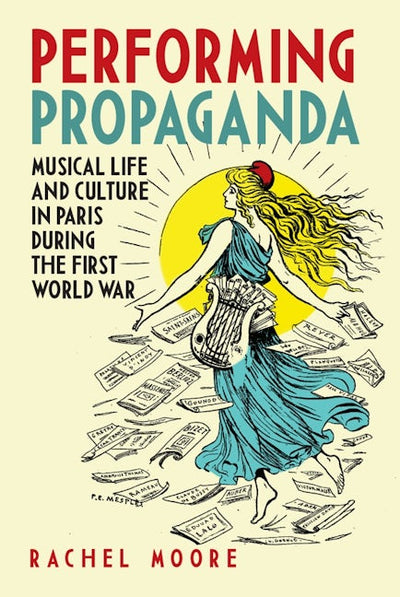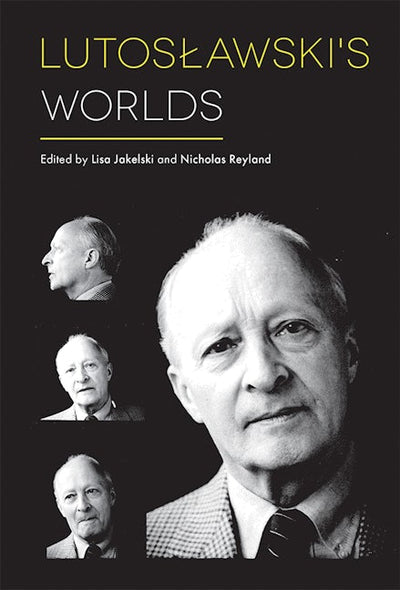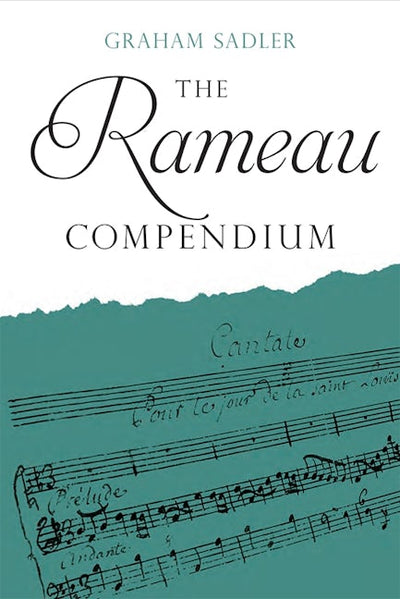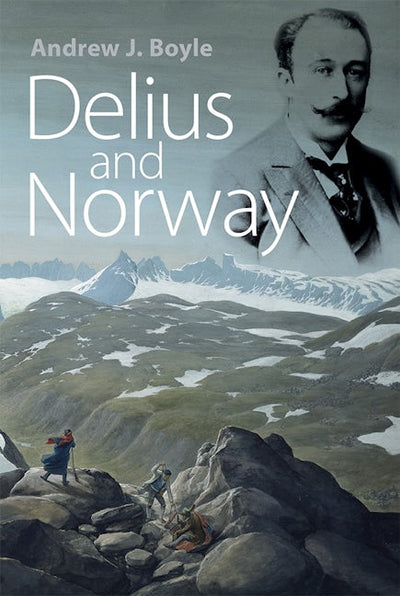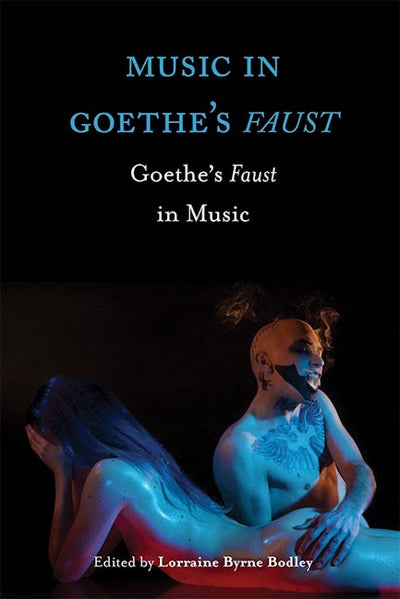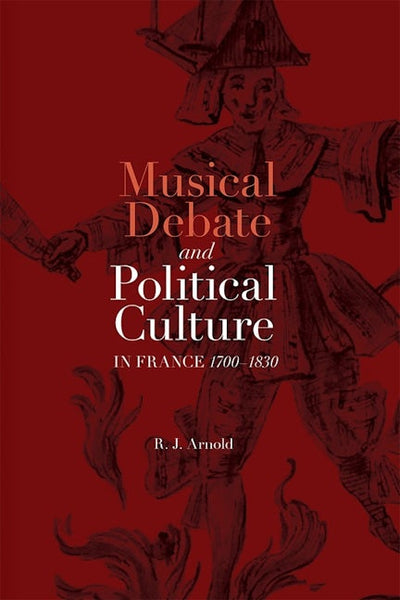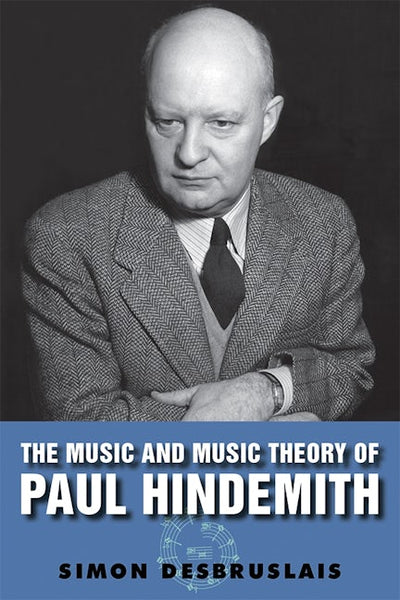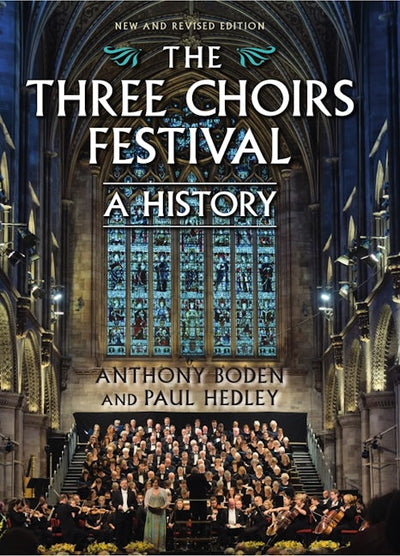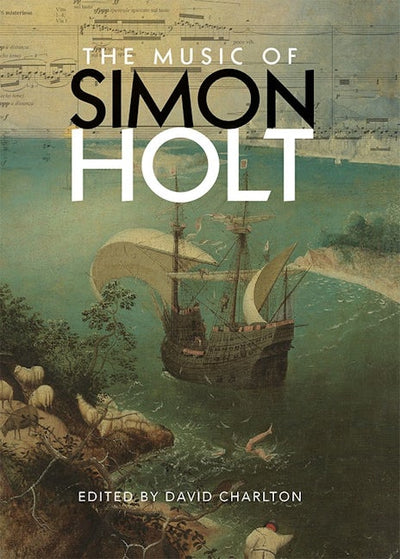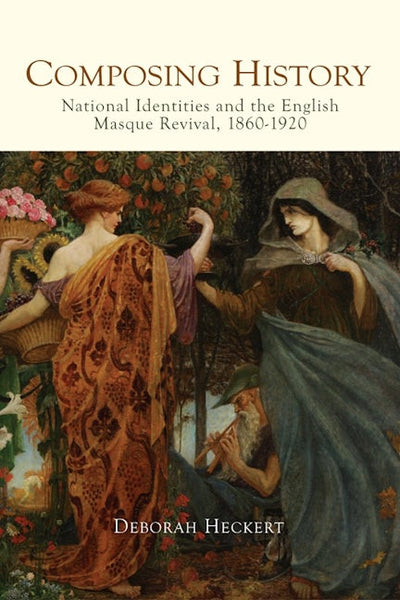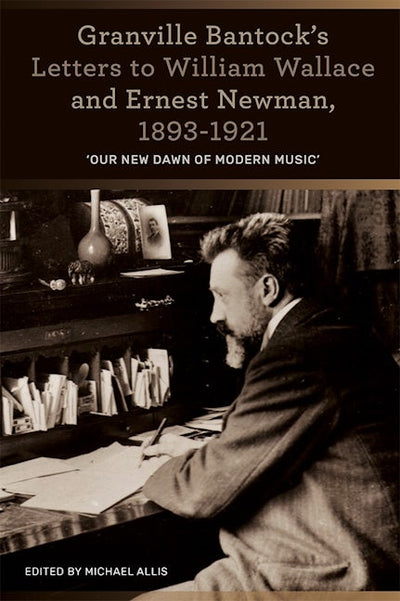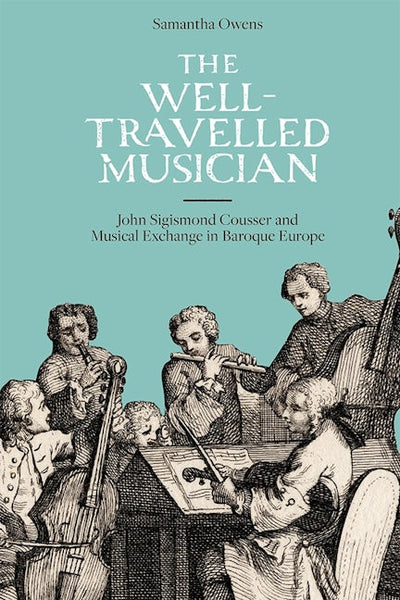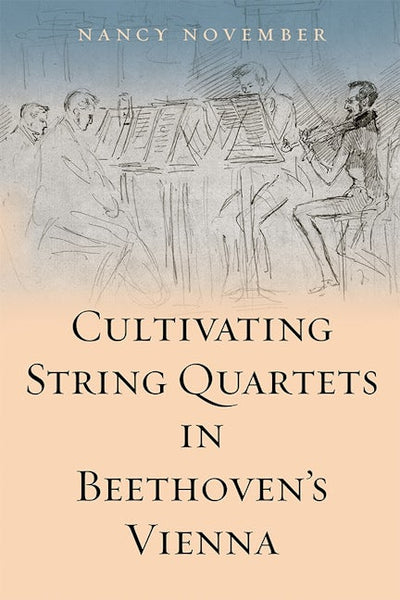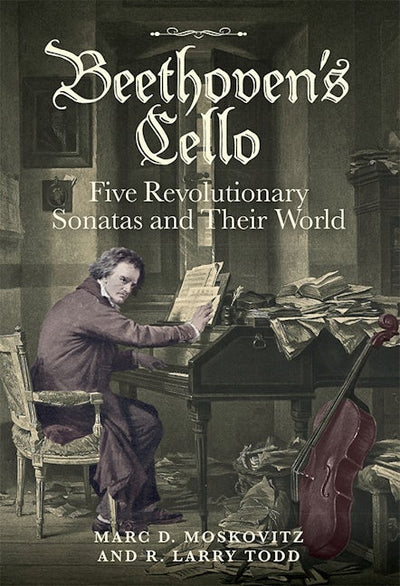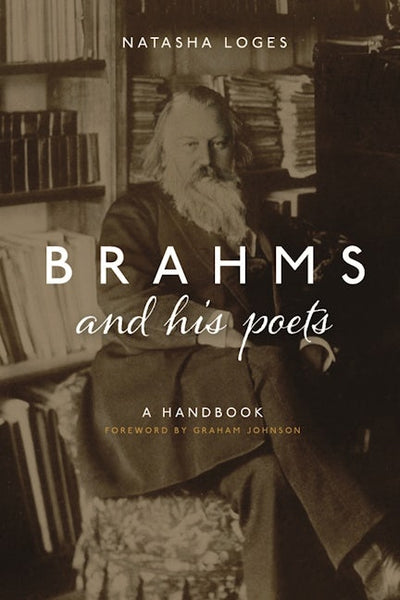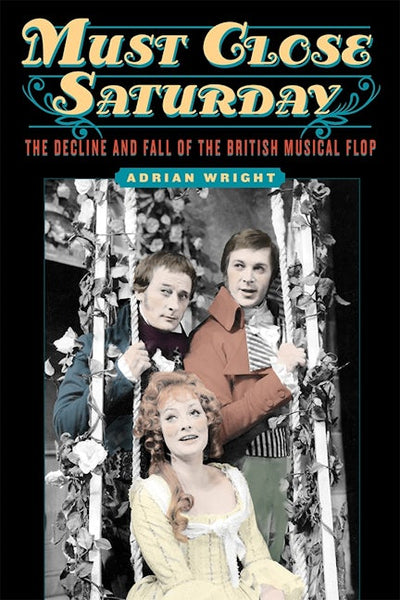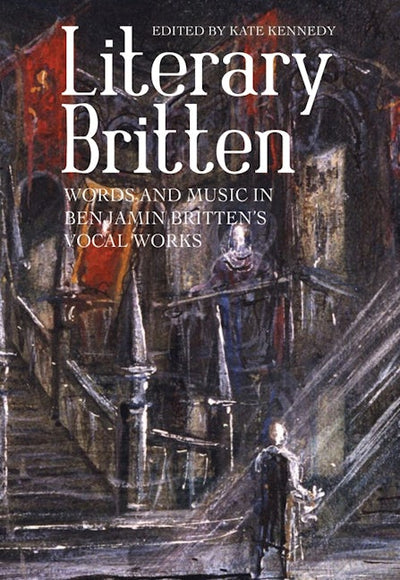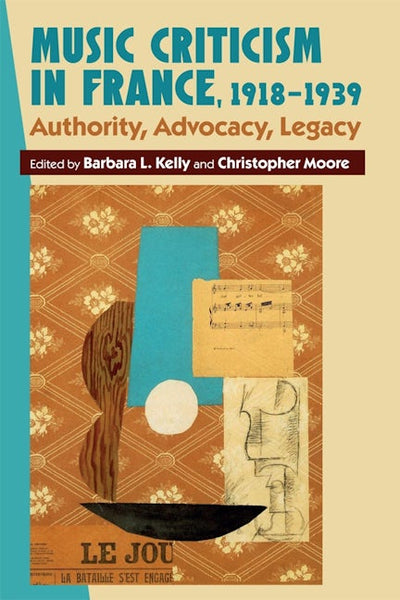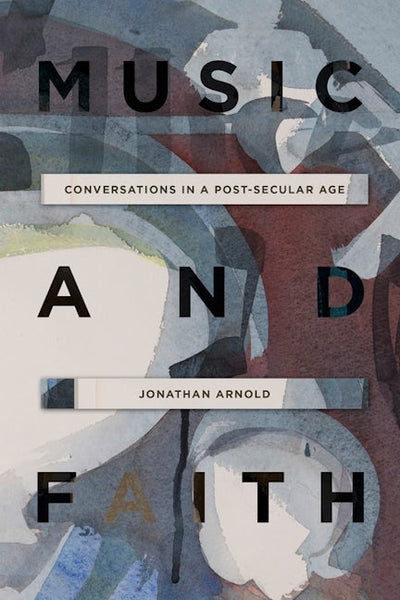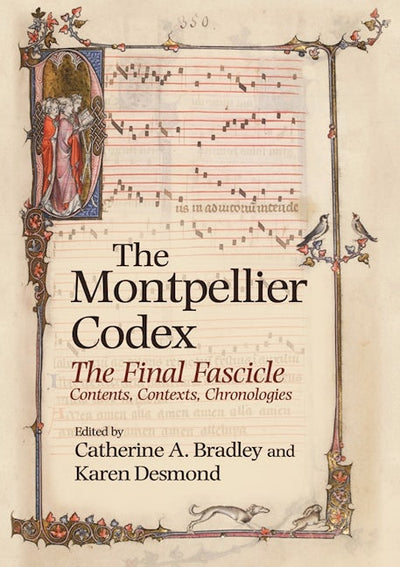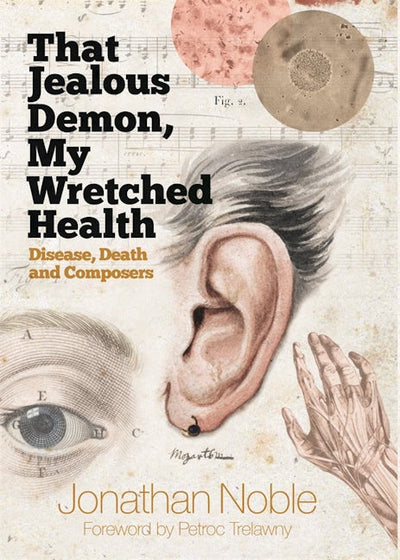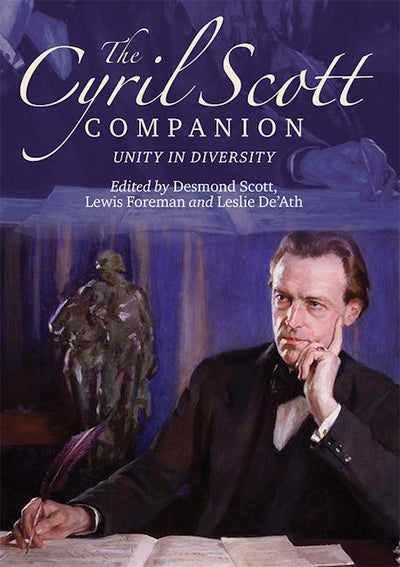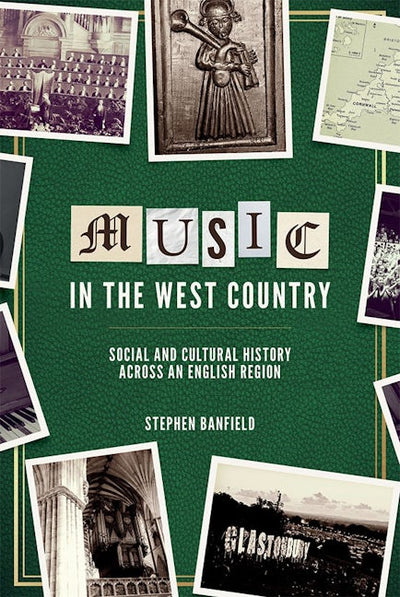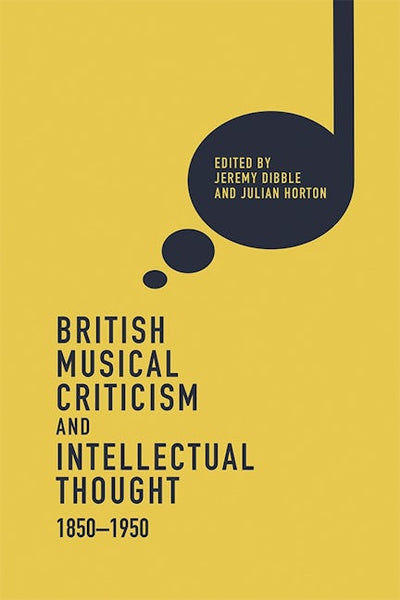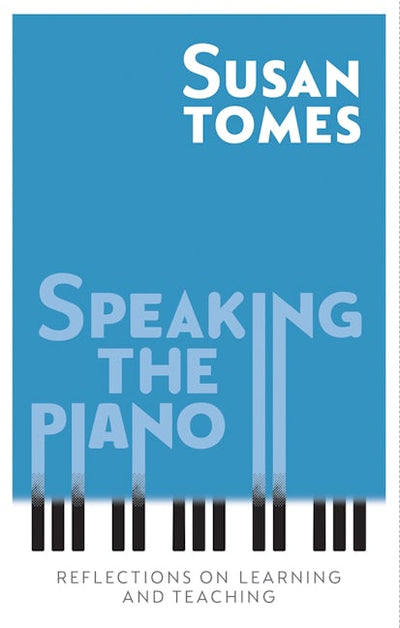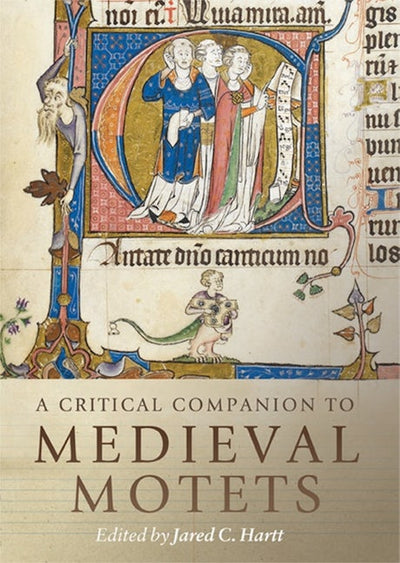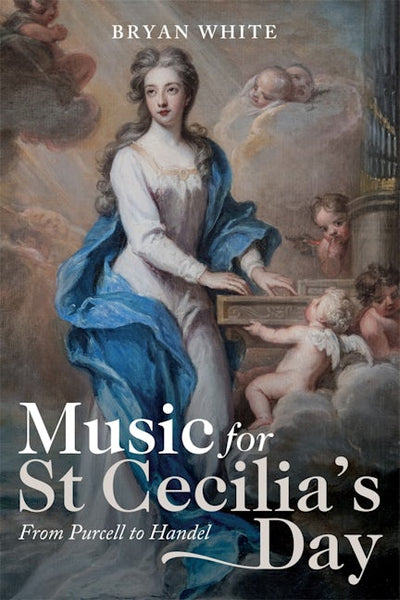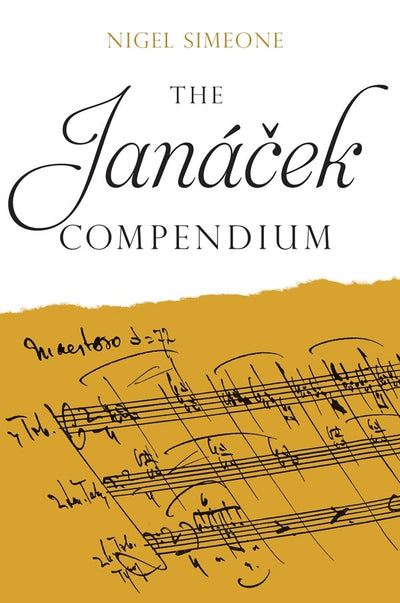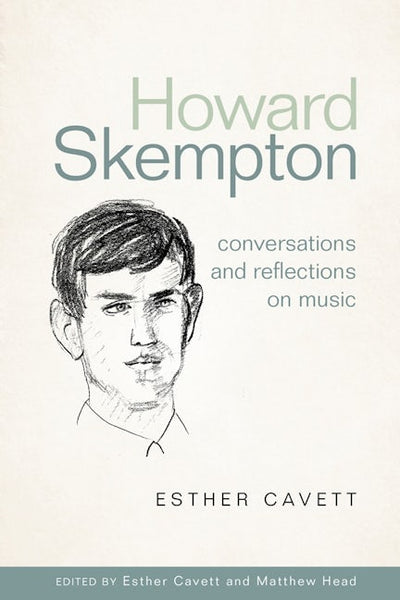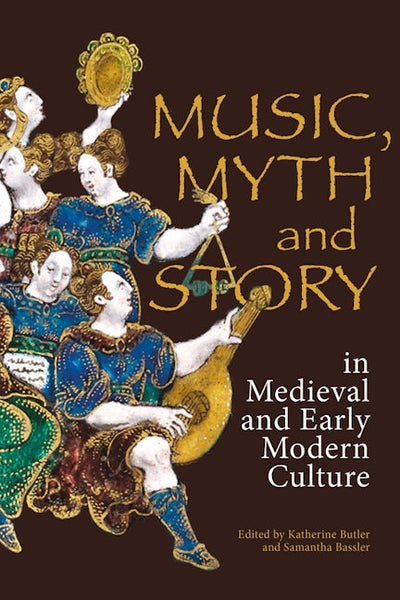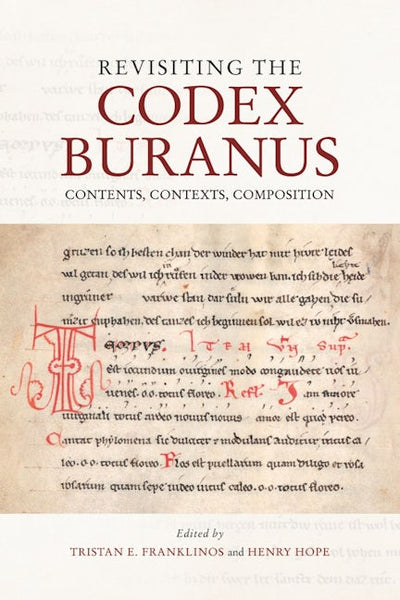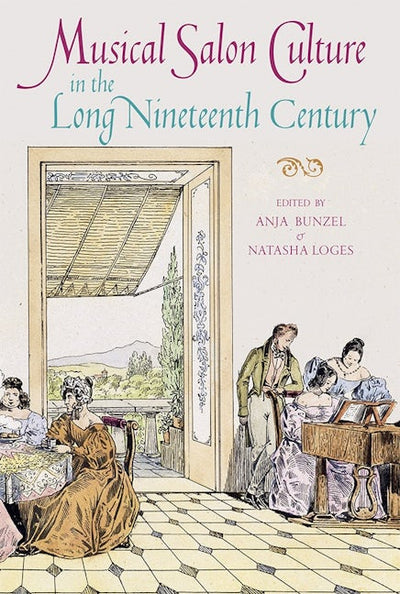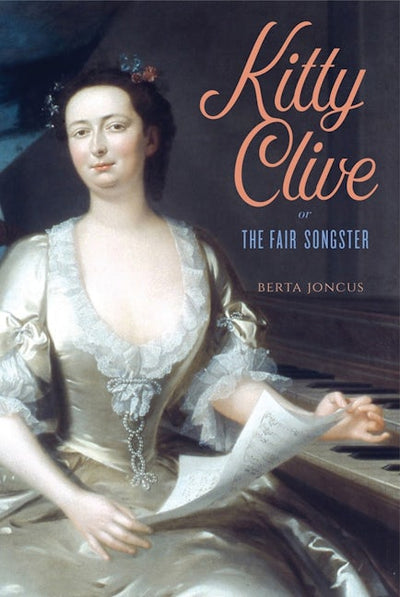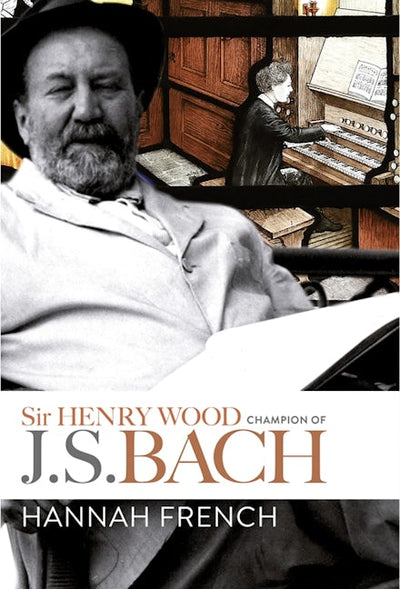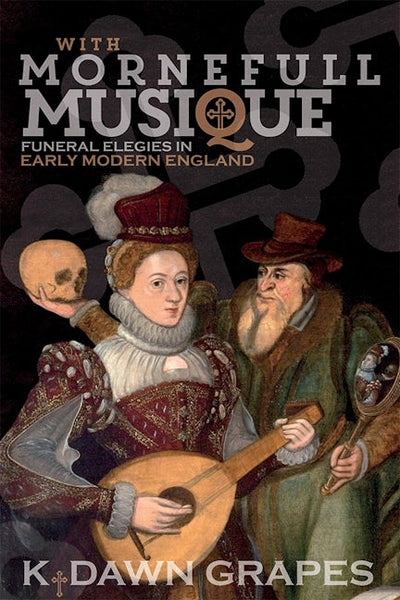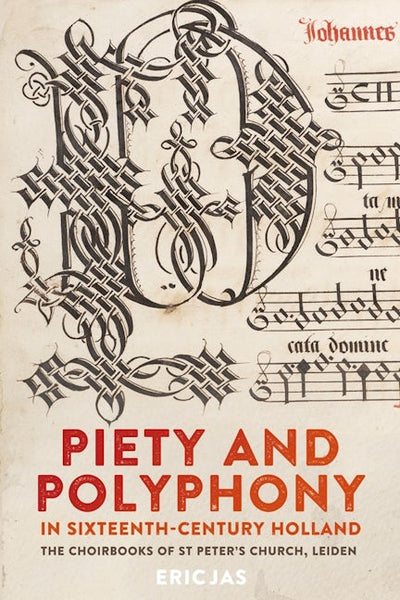- Agate Publishing
- Boydell & Brewer Inc.
- Columbia University Press
- Fordham University Press
- Girl Friday Books
- Haymarket Books
- Manchester University Press
- Morgan James Publishing
- PM Press
- The American University in Cairo Press
- The Chinese University of Hong Kong Press
- Tulika Books
- Turner Publishing Company
- University of California Press
- Welbeck Publishing Group Limited
- Wilfrid Laurier University Press
- Agate Bolden
- Boethius Press
- Boydell Press
- Camden House
- Carlton Books
- Columbia University Press
- Fordham University Press
- Girl Friday Books
- Graphic Arts Books
- Haymarket Books
- Manchester University Press
- Morgan James Publishing
- Mortimer
- Orange Hippo!
- Pembles Publications
- PM Press
- Surtees Society
- The American University in Cairo Press
- The Chinese University of Hong Kong Press
- Toccata Press
- Tulika Books
- University of California Press
- University of Rochester Press
- Welbeck
- Welbeck Publishing
-
Antiques & Collectibles
-
Architecture
-
Art
-
Bibles
-
Biography & Autobiography
-
Body, Mind & Spirit
-
Business & Economics
-
Comics & Graphic Novels
-
Computers
-
Cooking
-
Crafts & Hobbies
-
Design
-
Education
-
Family & Relationship
-
Fiction
-
Foreign Language Study
-
Games & Activities
-
Gardening
-
Health & Fitness
-
History
-
House & Home
-
Humor
-
Juvenile Fiction
-
Juvenile Nonfiction
-
Language Arts & Disciplines
-
Law
-
Literary Collections
-
Literary Criticism
-
Mathematics
-
Medical
-
Miscellaneous
-
Music
-
Nature
-
Performing Arts
-
Pets
-
Philosophy
-
Photography
-
Poetry
-
Political Science
-
Psychology
-
Reference
-
Religion
-
Self-Help
-
Science
-
Social Science
-
Sports & Recreation
-
Study Aids
-
Technology & Engineering
-
Transportation
-
Travel
-
True Crime
-
Young Adult Fiction
-
Young Adult Nonfiction
- Agate Publishing
- Boydell & Brewer Inc.
- Columbia University Press
- Fordham University Press
- Girl Friday Books
- Haymarket Books
- Manchester University Press
- Morgan James Publishing
- PM Press
- The American University in Cairo Press
- The Chinese University of Hong Kong Press
- Tulika Books
- Turner Publishing Company
- University of California Press
- Welbeck Publishing Group Limited
- Wilfrid Laurier University Press
- Agate Bolden
- Boethius Press
- Boydell Press
- Camden House
- Carlton Books
- Columbia University Press
- Fordham University Press
- Girl Friday Books
- Graphic Arts Books
- Haymarket Books
- Manchester University Press
- Morgan James Publishing
- Mortimer
- Orange Hippo!
- Pembles Publications
- PM Press
- Surtees Society
- The American University in Cairo Press
- The Chinese University of Hong Kong Press
- Toccata Press
- Tulika Books
- University of California Press
- University of Rochester Press
- Welbeck
- Welbeck Publishing
-
Antiques & Collectibles
-
Architecture
-
Art
-
Bibles
-
Biography & Autobiography
-
Body, Mind & Spirit
-
Business & Economics
-
Comics & Graphic Novels
-
Computers
-
Cooking
-
Crafts & Hobbies
-
Design
-
Education
-
Family & Relationship
-
Fiction
-
Foreign Language Study
-
Games & Activities
-
Gardening
-
Health & Fitness
-
History
-
House & Home
-
Humor
-
Juvenile Fiction
-
Juvenile Nonfiction
-
Language Arts & Disciplines
-
Law
-
Literary Collections
-
Literary Criticism
-
Mathematics
-
Medical
-
Miscellaneous
-
Music
-
Nature
-
Performing Arts
-
Pets
-
Philosophy
-
Photography
-
Poetry
-
Political Science
-
Psychology
-
Reference
-
Religion
-
Self-Help
-
Science
-
Social Science
-
Sports & Recreation
-
Study Aids
-
Technology & Engineering
-
Transportation
-
Travel
-
True Crime
-
Young Adult Fiction
-
Young Adult Nonfiction
Hanns Eisler's Art Songs
Regular price $120.00 Save $-120.00Best known for his collaborations with Bertolt Brecht, composer Hanns Eisler also set nineteenth-century German poetry to music that both absorbs and disturbs the Lieder tradition. This book traces Eisler's art songs (German: Kunstlieder) through twentieth-century political crises from World War I to Nazi-era exile and from Eisler's postwar deportation from the US to the ideological pressures he faced in the early German Democratic Republic. His artsongs are presented not as an escape from the "dark times" Brecht lamented but rather as a way to intervene in the nationalist appropriation of aesthetic material.
The book follows a chronological arc from Eisler's early Morgenstern songs to his Lied-like setting of Brecht's 1939 "To Those Who Come After" and his treatment of Hölderlin's poetry in the 1940s Hollywood Songbook; the final two chapters focus on Eisler's Goethe settings in the early GDR, followed by his late Serious Songs recalling Brahms in their reflective approach. In its combination of textual and musicological analysis, this book balances technical and lay vocabulary to reach readers with or without musical background. The author's practical perspective as a singer also informs the book, as she addresses not only what Eisler asks of the voice but also the challenge of evoking both intimacy and distance in his politically fraught art songs.
Heidi Hart holds a PhD in German Studies from Duke University. She is an instructor in the College of Humanities and Social Sciences at Utah State University.

Bernstein and Robbins
Regular price $130.00 Save $-130.002022 CHOICE Outstanding Academic Title Winner.
Leonard Bernstein and choreographer Jerome Robbins stand as giants of the musical-theatre world, but it was ballet that launched their stage careers and established their relationship. With Fancy Free (1944), their triumphant debut collaboration produced by Ballet Theatre, Bernstein, Robbins, and set designer Oliver Smith-all in their mid-twenties- captured the spirit of wartime New York, created a defining ballet of the period still widely performed today, and became overnight sensations. The hit musical On the Town (1944) and a now largely forgotten ballet, Facsimile (1946), followed over the next two years.
Drawing extensively on previously unpublished archival documents, Bernstein and Robbins: The Early Ballets provides a richly detailed and original historical account of the creation, premiere, and reception of Fancy Free and Facsimile. It reveals the vital and sometimes conflicting role of Ballet Theatre, explores how Bernstein composed the scores, sheds light on the central importance of Oliver Smith, and considers the legacy of these works for all involved. The result is a new understanding of Bernstein, Robbins, and this formative period in their lives.

Piano-Playing Revisited
Regular price $65.00 Save $-65.00Today's pianists are expected to play music of three centuries on a single instrument: Steinway's design from the late 1800s. Other types of pianos, such as Mozart's Walter or Chopin's Pleyel, are increasingly being copied or restored, but they are played almost exclusively by specialists in "Historical Performance." David Breitman has been introducing Oberlin Conservatory students to historical keyboards since 1991, and in this book he focuses on the music he cares about most deeply and the problems he has found most perplexing.
He begins by acknowledging the dilemma of confronting historical repertoire with modern instruments, then shows how to apply insights from period instruments to practical problems on any piano, including the relationship between melody and accompaniment and the use of the pedal. The central portion of the book discusses the pianos and piano music of Haydn and Mozart, Beethoven, Schubert, and Chopin, as well as the special place of the clavichord in eighteenth-century keyboard culture. A wide range of musical examples demonstrates how composers were influenced by the instruments they knew, and how that understanding can help today's performers. The book concludes with a passionate plea for individual creativity and autonomy, authentic voices for our own time.
A suite of videos, including demonstrations of representative musical examples as well as of the moderator pedal and clavichord action, can be found here: https://vimeo.com/showcase/8046349.

Canonic Repertories and the French Musical Press
Regular price $130.00 Save $-130.00This long-awaited book by a leading historian of European music life offers a fresh reading of concert and operatic life by showing how certain musical works in eighteenth- and nineteenth-century France came to be considered "canonic": that is, admirable and worthy of being taken as models. In a series of interlinked essays, William Weber draws particular attention to the ways in which such reputations could shift in different eras and circumstances.
The first chapter outlines how such a surge of reputation came about for Jean-Baptiste Lully after his death in 1687, followed a century later by one for the operas of Christoph-Willibald Gluck and Niccolò Piccinni. Next, Beverly Wilcox contributes a crucial chapter exploring how a canon of sacred works evolved at the Concert Spirituel between 1725 and 1790. Subsequent chapters detail the rise of an "incipient canon" for Joseph Haydn's music in the 1780s; a new operatic canon centered on works of Gioachino Rossini and Giacomo Meyerbeer; a century-long canonic repertory at the theater of the Opéra-Comique; and, between 1860 and 1914, frequent concert performances of excerpts from Wagner's operas, sometimes along with excerpts from Meyerbeer's.
Throughout, Weber and Wilcox demonstrate how the French musical press reflected musical taste, and also shaped it, across two centuries.

The Clarinet
Regular price $65.00 Save $-65.00With essays written by leading performer-scholars, The Clarinet offers unique perspectives on the clarinet's historical role in various styles, genres, and ensembles. Beginning with a chapter on clarinet iconography, the book continues with an overview of the instrument's early history, chapters on the clarinet in the opera orchestra and the traditional symphony orchestra, and examinations of important genres involving the clarinet (the concerto and the clarinet quintet). Also included are chapters on leading twentieth-century clarinetists, the instrument's use in the historically informed performance (HIP) movement, and an expansive look at the clarinet's use in ethnic traditions and early jazz. The emphasis on topics not covered elsewhere makes this book an important contribution to the clarinet literature. Written in an accessible style, this volume engages a wide range of readers, from professional musicians to clarinet aficionados and music lovers with less specialized knowledge.
Contributors to this volume include Jane Ellsworth, Eric Hoeprich, Albert R. Rice, Ingrid Pearson, Julian Rushton, David Schneider, Marie Sumner Lott, Colin Lawson, and S. Frederick Starr.

Music Theatre in Britain, 1960-1975
Regular price $75.00 Save $-75.00Based on Michael Hall's many interviews with leading British composers of the genre, this book looks at the heyday of the British Music Theatre in the 1960s and 70s, a period when the author as a BBC radio producer was actively involved with the contemporary music scene. Music Theatre - a composite of music, singing, dancing and speaking distinct from traditional opera and ballet - has its roots in works by Monteverdi, Schoenberg, Satie, Stravinsky, Weill,Hindemith and Eisler, but flourished anew in the 1960s, in America, Britain and Europe.
Hall's book presents an account of the context for the activity of Birtwistle, Goehr and Maxwell Davies; it uncovers details of little-known early works by other major figures such as Cardew and Tavener; and it recognises the highly distinctive contributions of composers whose works are less well known. Music Theatre in Britain also throws new light upon the reaction of British composers to the economic and social upheavals of 'the Sixties', offering a distinct and valuable contribution to our understanding of the relationship of the post-war musical avant-garde to social movementsand ideology. Music Theatre in Britain will be of interest to all those working in the field of late twentieth-century British music, to students of composition, and to composers, performers and producers of Music Theatre.
MICHAEL HALL, who died in August 2012, had a long career as a conductor, founder of Royal Northern Sinfonia, BBC producer and broadcaster, university lecturer and writer on music.

The Partimenti of Giovanni Paisiello
Regular price $130.00 Save $-130.00WINNER: The Giovanni Paisiello Festival Prize 2025
Giovanni Paisiello (1740-1816) was one of the most important composers of opera in the eighteenth century. His operas were performed throughout Europe, and his fame led to appointments as a maestro di cappella and composer at prominent European courts. This book is the first study to address his work as a teacher of composition and what we would today call music theory.
The practice of partimento (figured or unfigured bass lines) was an integral part of the training of musicians at the renowned conservatories in eighteenth-century Naples. By employing these often-unprepossessing partimento bass lines, young musicians learned the techniques of variation, improvisation, and composition while seated at the harpsichord.
Paisiello's Regole per bene accompagnare il Partimento (Rules for Harpsichordists; 1782) survives in both autograph and printed forms. It contains forty-six partimenti that have long been considered the core of his pedagogic oeuvre. However, two recently discovered manuscripts contain a further forty-one unknown partimenti, notated as two- and three-part disposizioni (realizations).
The present study offers numerous insights gleaned from the surviving sources and bolsters our understanding of how to perform the music of Paisiello and his contemporaries: music that has often survived in an incomplete form. These findings are relevant not just for keyboard players but also for singers, instrumentalists, and anyone interested in the inner workings of eighteenth- and early nineteenth-century music.

Musicians of Bath and Beyond: Edward Loder (1809-1865) and his Family
Regular price $130.00 Save $-130.00Musicians of Bath and Beyond: Edward Loder (1809-1865) and his Family illuminates three areas that have recently attracted much interest: the musical profession, music in the British provinces and colonies, and English Romantic opera. The Loder family was pre-eminent in Bath's musical world in the early nineteenth century. John David Loder (1788-1846) led the theatre orchestra there from 1807, and later the Philharmonic orchestra and Ancient Concerts in London; he also wrote the leading instruction manual on violin playing and taught violin at the Royal Academy of Music. His son Edward James (1809-65) was a brilliant but underrated composer of opera, songs, and piano music. George Loder (1816-68) was a well-known flautist and conductor who made a name in New York and eventually settled in Adelaide, where he conducted the Australian premieres of Les Huguenots, Faust, and other important operas. Kate Fanny Loder (1825-1904) became a successful pianist and teacher in early Victorian London, and she is only now getting her due as a composer.
This book takes advantage of new and often surprising biographical research on the Loder family as a whole and its four main figures. It uses them to illustrate several aspects of music history: the position of professional musicians in Victorian society; music in the provinces, especiallyBath and Manchester; the Victorian opera libretto; orchestra direction; violin teaching; travelling musicians in the US and Australasia; opera singers and companies; and media responses to English opera. The concluding section isan intense analysis and reassessment of Edward Loder's music, with special emphasis on his greatest work, the opera Raymond and Agnes.
NICHOLAS TEMPERLEY is Professor Emeritus of Musicology at the University ofIllinois at Urbana-Champaign and is a leading authority on Victorian music.
CONTRIBUTORS: Stephen Banfield, David Chandler, Andrew Clarke, Liz Cooper, Therese Ellsworth, David J. Golby, Andrew Lamb, Valerie Langfield, Alison Mero, Paul Rodmell, Matthew Spring, Julja Szuster, Nicholas Temperley

Minna Wagner
Regular price $170.00 Save $-170.00When Richard Wagner first met Minna Planer in 1834, he was an unknown conductor, she a popular actress. His hectic pursuit of her affections culminated in marriage in 1836. Minna endured poverty with him, nursed him through chronic illness, followed him across Europe as he fled from creditors and pursued his artistic goals, and sought to provide him with the stable domestic and erotic life that he craved. He played his works to her as he wrote them, up to Tannhäuser and Lohengrin, and set store by her opinions. But when he went on the run as a wanted revolutionary, Minna only reluctantly followed him into Swiss exile.
Domestic peace tentatively prevailed, but was ultimately destroyed by Wagner's passion for Mathilde Wesendonck. In 1858, he and Minna separated, she returned home to Germany, and subsequent efforts at reconciliation proved ultimately impossible. They remained married, however, until Minna's death in 1866.
Despite having been at Richard's side as he matured into the composer of the Ring and Tristan, Minna has been given short shrift by most Wagner commentators. In Eva Rieger's acclaimed biography, translated into English by Chris Walton, the author reveals Minna as a self-assured woman and artist who played a crucial role in the creative life of her husband.

The Idea of Art Music in a Commercial World, 1800-1930
Regular price $170.00 Save $-170.00Art and money, culture and commerce, have long been seen as uncomfortable bedfellows. Indeed, the connections between them have tended to resist full investigation, particularly in the musical sphere. The Idea of Art Music in aCommercial World, 1800-1930, is a collection of essays that present fresh insights into the ways in which art music, i.e., classical music, functioned beyond its newly established aesthetic purpose (art for art's sake) and intersected with commercial agendas in nineteenth- and early twentieth-century culture. Understanding how art music was portrayed and perceived in a modernizing marketplace, and how culture and commerce interacted, are the book's main goals.
In this volume, international scholars from musicology and other disciplines address a range of unexplored topics, including the relationship of sacred music with commerce in the mid nineteenth century, the roleof music in urban cultural development in the early twentieth, and the marketing of musical repertories, performers and instruments across time and place, to investigate what happened once art music began to be understood as needing to exist within the wider framework of commercially oriented culture. Historical case studies present contrasting topics and themes that not only vary geographically and ideologically but also overlap in significant ways, pushing back the boundaries of the 'music as commerce' discussion. Through diverse, multidisciplinary approaches, the volume opens up significant paths for conversation about how musical concepts, practices and products were shaped byinterrelationships between culture and commerce.
CHRISTINA BASHFORD is Associate Professor of Musicology at the University of Illinois.
ROBERTA MONTEMORRA MARVIN is Director of the Opera Studies Forum in the Obermann Center for Advanced Studies at the University of Iowa, where she is also on the faculty.
CONTRIBUTORS: Christina Bashford, George Biddlecombe, Denise Gallo, David Gramit, Catherine Hennessy Wolter, Roberta Montemorra Marvin, Fiona Palmer, Jann Pasler, Michela Ronzani, Jon Solomon, Jeffrey S. Sposato, Nicholas Vazsonyi, David Wright

Tempo and Tactus in the German Baroque
Regular price $190.00 Save $-190.00Before the advent of the metronome ca. 1800, there was little in the way of a standardized, commonly accessible method for precisely communicating how fast musical compositions should be performed. Instead of absolute time (that is, plottable on a metronome), Baroque musicians developed notational cues for relative speed: this was accomplished primarily through combinations of time signatures and note values. Julia Dokter's Tempo and Tactus in the German Baroque helps decode these tempo cues for modern performers.
Part 1 investigates metric theory in music treatises from roughly 1600 to 1790. Parts 2 and 3 explore the organ scores of pivotal composers such as J. S. Bach, Dieterich Buxtehude, Matthias Weckman, and Nicolaus Bruhns, and present case studies demonstrating how Baroque tempo indications may interact in performance situations.
Readers will discover how Baroque musicians modified the Renaissance mensural system to incorporate tempo shifts; how the various duple, triple, and compound meters interrelated; how the technical display of stylus phantasticus writing affected tempo; how tempo words (such as allegro) functioned; and how the choice of performing forces-chorus, solo keyboard, and so on-could affect the way tempo was notated.
By addressing questions of tempo fundamental to German Baroque music, this book lays important groundwork for organists and for performers of other instrumental music of this period.

Karl Straube (1873–1950)
Regular price $240.00 Save $-240.00In the course of a multifaceted career, Karl Straube (1873-1950) rose to positions of immense cultural authority in a German musical world caught in unprecedented artistic and sociopolitical upheaval. Son of a German harmonium-builder and an intellectually inclined English mother, Straube established himself as Germany's iconic organ virtuoso by the turn of the century. His upbringing in Bismarck's Berlin encouraged him to develop intensive interests in world history and politics. He quickly became a sought-after teacher, editor, and confidante to composers and intellectuals, whose work he often significantly influenced. As the eleventh successor to J. S. Bach in the cantorate of St. Thomas School, Leipzig, he focused the choir's mission as curator of Bach's works and, in the unstable political climate of the interwar years, as international emissary for German art. His fraught exit from the cantorate in 1939 bore the scars of his Nazi affiliations and issued in a final decade of struggle and disillusionment as German society collapsed.
Christopher Anderson's book presents the first richly detailed examination of Karl Straube's remarkable life, situated against the background of the dynamic and sometimes sinister nationalism that informed it. Through extensive examination of primary sources, Anderson reveals a brilliant yet deeply conflicted musician whose influence until now has been recognized, even hailed, but little understood.

Creating Der Rosenkavalier
Regular price $130.00 Save $-130.00L'Ingenu libertin was seen in Paris by Count Harry Kessler and formed the basis of the opera then to be written by Hofmannsthal and Strauss. Previous scholarship has credited the narrative and characters of Der Rosenkavalier to much older French sources known to and studied by Hofmannsthal, but this book shows clearly how every element in L'Ingenu libertin is in fact taken (and transformed) by Kessler and Hofmannsthal into the work that made fortunes for Hofmannsthal and Strauss, but left Kessler on the sidelines.
Michael Reynolds casts a major new light on Strauss's most popular operatic success, highlighting in particular how it was that Hofmannsthal - who had not until then had any theatrical success as an original playwright - was advised and empowered by Kessler to produce a work that succeeded onstage from its very first performance and went rapidly on to conquer the stages of the world.
Michael Reynolds is an established writer on opera, a translator and an online music critic, an interest that he sustained throughout thirty years in the world of international diplomacy. His previous book for Boydell, About Suffolk, was an anthology of writing about his adopted county.

The Sea in the British Musical Imagination
Regular price $130.00 Save $-130.00For centuries, the sea and those who sail upon it have inspired the imaginations of British musicians. Generations of British artists have viewed the ocean as a metaphor for the mutable human condition - by turns calm and reflective, tempestuous and destructive - and have been influenced as much by its physical presence as by its musical potential. But just as geographical perspectives and attitudes on seascapes have evolved over time, so too have culturalassumptions about their meaning and significance. Changes in how Britons have used the sea to travel, communicate, work, play, and go to war have all irresistibly shaped the way that maritime imagery has been conceived, represented, and disseminated in British music.
By exploring the sea's significance within the complex world of British music, this book reveals a network of largely unexamined cultural tropes unique to this island nation. The essaysare organised around three main themes: the Sea as Landscape, the Sea as Profession, and the Sea as Metaphor, covering an array of topics drawn from the seventeenth century to the twenty-first. Featuring studies of pieces by thelikes of Purcell, Arne, Sullivan, Vaughan Williams, and Davies, as well as examinations of cultural touchstones such as the BBC, the Scottish fishing industry, and the Aldeburgh Festival, The Sea in the British Musical Imagination will be of interest to musicologists as well as scholars in history, British studies, cultural studies, and English literature.
ERIC SAYLOR is Associate Professor of Musicology at Drake University.
CHRISTOPHER M. SCHEER is Assistant Professor of Musicology at Utah State University.
CONTRIBUTORS: Byron Adams, Jenny Doctor, Amanda Eubanks Winkler, James Brooks Kuykendall, Charles Edward McGuire, Alyson McLamore, Louis Niebur, Jennifer Oates, Eric Saylor, Christopher M. Scheer, Aidan J. Thomson, Justin Vickers, Frances Wilkins

Erik Satie
Regular price $49.95 Save $-49.95Sunday Times Classical Music Book of the Year
Erik Satie's (1866-1925) music appeals to wide audiences and has influenced both experimental artists and pop musicians. Little about Satie was conventional, and he resists classification under easy headings such as "classical music". Instead of pursuing the path of a professional composer, Satie initially earned a living as a café pianist and moved in bohemian circles which prized satire, popular culture and experiment. Small wonder that his music is fundamentally new in conception. It is music which is not always designed to be listened to attentively: music which can be machine-like but is to be played by humans. For Satie, music was part of a wider concept of artistic creation, as evidenced by his collaborations with leading avant-garde artists and in works which cross traditional genre boundaries such as his texted piano pieces. His music was created in some of the most exciting and creatively stimulating environments of the late nineteenth and early twentieth century: Montmartre and Montparnasse. Paris was the artistic centre of Europe, and Satie was a notorious figure whose music and ideas are inextricably linked with the City of Light. This book situates Satie's work within the context and sonic environment of contemporary Paris. It shows that the influence of street music, musicians and poets interested in new technology, contemporary innovations and radical politics are all crucial to an understanding of Satie. Music from the ever-popular Gymnopédies to newly discovered works are discussed, and an online supplement features rare pieces recorded especially for the book.

British Royal and State Funerals
Regular price $190.00 Save $-190.00British royal and state funerals are among the most elaborate and solemn occasions in European history. This book is the first in-depth study of the ceremonial and the music performed at these events over the past 400 years, fromthe funeral of Elizabeth I in 1603. Covering funerals of both royalty and non-royalty, including Nelson, Wellington and Churchill, this study goes up to the funerals of Queen Elizabeth The Queen Mother in 2002 and the ceremonial funeral of Baroness Thatcher in 2013. While some of these funerals have received a good deal of attention - especially the 1997 funeral of Diana, Princess of Wales - these extraordinary events have largely not been discussed in their longer historical context.
The book examines the liturgical changes in the Anglican funeral rite since the Reformation and also the change from the so-called 'public' to 'private' funerals. It includes many new findings onthe development of the ceremonial and its intricate peculiarities, as well as new insights into the music and its performance. British Royal and State Funerals shows that, despite a strong emphasis on continuity in the choice of music, the ceremonial itself has shown an astonishing flexibility over the last four centuries. Overall, the book also contributes to the debate on the monarchy's changing public image over time by paying particular attention to topics such as tradition and propaganda. Drawing on substantial research in principal libraries and archives, including those of Westminster Abbey, the College of Arms, Lambeth Palace and the British Library, this book is an exhaustive resource for musicologists, musicians and historians alike, providing an unprecedented insight into this most sombre of royal and state occasions.
MATTHIAS RANGE is author of Music and Ceremonial at British Coronations (2012). He is a post-doctoral researcher for the Digital Image Archive of Medieval Music and its partner AHRC-funded Tudor Partbooks project at the Faculty of Music, University of Oxford.

Music at German Courts, 1715-1760
Regular price $190.00 Save $-190.00What was musical life at German courts really like during the eighteenth century? Were musical ensembles as diverse as the Holy Roman Empire's kaleidoscopic political landscape? Through a series of individual case studies contributed by leading scholars from Germany, Poland, the United States, Canada, and Australia, this book investigates the realities of musical life at fifteen German courts of varied size (ranging from kingdoms to principalities), religious denomination, and geographical location. Significant shifts that occurred in the artistic priorities of each court are presented through a series of "snapshots"- in effect "core sample" years - which highlight both individualand shared patterns of development and decline.
What emerges from the wealth of primary source material examined in this volume is an in-depth picture of music-making within the daily life of individual courts, featuring acast of music directors, instrumentalists, and vocalists, together with numerous support staff drawn from across Europe. Music at German Courts serves to illustrate the extraordinary diversity of eighteenth-century German court music establishments without losing sight of what these Kapellen had in common.
SAMANTHA OWENS is Senior Lecturer in Musicology at the University of Queensland, Brisbane, Australia. BARBARA M. REUL is Associate Professor of Musicology at Luther College, University of Regina, Canada. JANICE B. STOCKIGT is a Principal Fellow of the University of Melbourne, Australia.
Contributors: DIETER KIRSCH, URSULA KRAMER, MICHAEL MAUL, MARY OLESKIEWICZ, SAMANTHA OWENS, RASHID-S. PEGAH, BÄRBEL PELKER, BARBARA M. REUL, WOLFGANG RUF, BERT SIEGMUND, JANICE B. STOCKIGT, MICHAEL TALBOT, RÜDIGER THOMSEN-FÜRST, ALINA ZORAWSKA-WITKOWSKA, STEVEN ZOHN

The Crafty Art of Opera
Regular price $36.95 Save $-36.95Opera is nowadays performed worldwide. But as an art form it is little understood by performers and audiences alike. The Crafty Art of Opera wants to change that. Here, Michael Hampe brings glimpses of the director's work to a wider audience, uncovering the many techniques and rules that should inform an opera's staging: the need for singers to know their orchestra, the importance of space around singers, the gestures of languages, what we all can learn from Mozart, and the primacy of sense over effect, to name but a few. He shows how stories, through music, become tangible and real.
Packed with many anecdotes from the author's luminous career, this book is dedicatedto opera-lovers who want to understand 'how it is done'; to opera-makers who want to better understand their craft; and, last but not least, to those who loathe opera, in order to prove them wrong. Eminently readable, it brings both insight and wit from a life spent in opera as director and teacher.
MICHAEL HAMPE is an internationally acclaimed opera stage director. The Crafty Art of Opera was published in German as Opernschule.

Encounters with British Composers
Regular price $49.95 Save $-49.95This book features interviews with leading and upcoming British composers who use the same raw materials but produce classical music that takes very different forms. Uniquely, Andrew Palmer approaches the sometimes baffling worldof contemporary music from the point of view of the inquisitive, music-loving amateur rather than the professional critic or musicologist. Readers can eavesdrop on conversations in which composers are asked a number of questionsabout their professional lives and practices, with the emphasis on the aesthetic sensibilities and psychological processes behind composing rather than technique. Throughout, the book seeks to explore why composers write the kindof music they write, and what they want their music to do. Along the way, readers are confronted with an unspoken but equally important question: if some composers are writing music that the public doesn't want to engage with, who's to blame for that? Are composers out of touch with their public, or are we too lazy to give their music the attention it deserves?
ANDREW PALMER is a freelance writer and photographer. He is editor of Composing in Words: William Alwyn on His Art (Toccata Press, 2009), author of Divas... In Their Own Words (Vernon Press, 2000) and co-author of A Voice Reborn (Arcadia Books, 1999). Since 1998 he has been a corresponding editor of Strings magazine (USA).
Interviewees include: Julian Anderson, Simon Bainbridge, Sally Beamish, George Benjamin, Michael Berkeley, Judith Bingham, Harrison Birtwistle, Howard Blake, Gavin Bryars, Diana Burrell, Tom Coult, Gordon Crosse, Jonathan Dove, David Dubery, Michael Finnissy, Cheryl Frances-Hoad, Alexander Goehr, Howard Goodall, Christopher Gunning, Morgan Hayes, Robin Holloway, Oliver Knussen, James MacMillan, Colin Matthews, David Matthews, Peter Maxwell Davies, John McCabe, Thea Musgrave, Roxanna Panufnik, Anthony Payne, Elis Pehkonen, Joseph Phibbs, Gabriel Prokofiev, John Rutter, Robert Saxton, John Tavener, Judith Weir, Debbie Wiseman, Christopher Wright

Peter Dickinson: Words and Music
Regular price $130.00 Save $-130.00Peter Dickinson made an enduring contribution to British musical life, and his music has been regularly performed and recorded by leading musicians. His writings, brought together here for the first time, are equally noteworthy. Covering well over half a century, the subjects are fascinatingly varied. Apart from musical interests ranging from Charles Ives to John Cage, they touch on literature; and Dickinson's meetings with W.H. Auden and Philip Larkin are an intriguing insight that led to his Auden songs and the chamber work Larkin's Jazz. American themes are prominent in this collection. There are unique reviews of concert life in New York from 1959 to 1961; an account of the teaching programme at the Juilliard School of Music at that time; three studies of Ives; and features containing original material on Copland, Thomson and Cage, all of whom Dickinson knew. Features on Erik Satie include the imaginary discussion marking his centenary in 1966. Dickinson also writes about his own music, providing an insight into what it was like being a British composer in the later twentieth century.
Peter Dickinson was born in Lancashire in 1934 and lived in Suffolk until his passing. His 80th birthday was marked by a whole variety of tributes, including concerts, articles, broadcasts and various interviews - some included in this book.
PETER DICKINSON was a British composer and pianist as well as author and editor of Boydell/URP books on Berkeley, Copland, Cage, Barber and Berners. As a pianist, Dickinson had a twenty-five-year, international partnership with his sister, the mezzo Meriel Dickinson, for whom he wrote song cycles to poems of E. E. Cummings, Gregory Corso and Stevie Smith. He was a regular contributor to BBC Radio 3 and was widely read as a critic on the Gramophone. He was an Emeritus Professor of the Universities of Keele and London and was chair of the Bernarr Rainbow Trust, for which he edited several books on music education.

The Music of Frank Bridge
Regular price $130.00 Save $-130.00The English composer, violist, and conductor Frank Bridge (1879-1941), a student of Sir Charles Villiers Stanford, was one of the first modernists in British music, developing the most radical and lastingly modern musical languageof his generation. Bridge was also one of the most accomplished British composers of chamber music in the twentieth century. After the lyrical romanticism of the early period, a notable expansion of style can be observed as earlyas 1913, leading eventually to the radical language of the Piano Sonata and Third String Quartet, drawing on influences such as Debussy, Stravinsky and the Second Viennese School composers.However, Bridge became frustrated that his later, more complex music was often ignored in favour of his earlier 'Edwardian' works; this neglect of his mature music contributed to the growing obscurity into which his music and reputation fell in his last years and afterhis death. Symptomatically, Bridge is still often remembered primarily for privately tutoring Benjamin Britten, who later championed his teacher's music and paid homage to him in the 'Variations on a Theme of Frank Bridge' (1937).This book, the first detailed, and long-overdue, study of Bridge's music and its relevant socio-cultural and aesthetic contexts, encourages a more thorough understanding of Bridge's style and development and will appeal to readers with interests in British music, early twentieth-century modernism and post-romanticism as well as genre and style.
FABIAN HUSS is Visiting Fellow at the University of Bristol and has published widely on British music (particularly EJ Moeran), with an emphasis on cultural history, and aesthetic and analytical issues.

George Smart and Nineteenth-Century London Concert Life
Regular price $130.00 Save $-130.00Sir George Thomas Smart (1776-1867) was a significant musical animateur of the early nineteenth century, who earned his living primarily as a conductor but was also significant as an organist, composer and recorder of events. Smart established successful and pioneering London concert series, was a prime mover in the setting up of the Philharmonic Society and the Royal Academy of Music, and taught many of the leading singers of the day, being well versed in the Handelian concert tradition. He also conducted the opera at the Covent Garden Theatre and introduced significant new works to the public - he was most notably an early champion of the music of Beethoven. His journeys to Europe, and his contacts with the leading European musical figures of the day (including Weber, Meyerbeer, Spohr, and Mendelssohn), were crucial to the direction music was to take in nineteenth-century Britain. This detailed account of Smart's life and career presents him within the context of the vibrant concert life of London and wider European musical culture. It is the first full length, critical study of this influential musical figure.
JOHN CARNELLEY is Deputy Director of Music and Head of Academic Music, Dulwich College, London. He holds a PhD in Historical Musicology from the University of London (Goldsmiths College) and has previously published research on the eighteenth-century organ manuscripts of John Reading, held in the Dulwich College Archive.

Benigno Zerafa (1726-1804) and the Neapolitan Galant Style
Regular price $130.00 Save $-130.00This book is the first-ever study of Malta's major eighteenth-century composer, Benigno Zerafa (1726-1804), a specialist in sacred music composition. Zerafa's large-scale and small-scale vocal and choral works, mostly written during his long service as musical director at the Cathedral of Mdina, have been winning increased recognition in recent years. In addition to describing and analysing this extensive corpus, the book gives an account of Zerafa's sometimes eventful career against the wider background of the rich musical and cultural life in Malta, especial attention being paid to its strong links with Italy, and particularly Naples, where Zerafa was a student for six years. Itexamines in detail the complex relationship of music to Catholic liturgy and investigates the distinctive characteristics of the musical style, intermediate between baroque and classical, in which Zerafa was trained and always composed: one that today is commonly labelled "galant".
Well stocked with music examples, the book makes copious reference to Italian and Maltese composers from Zerafa's time and to modern analytical studies of Italian music from the middle decades of the eighteenth century, thereby offering a useful general commentary on the galant period. Its central aim, however, is to stimulate further interest in, and revival of, Zerafa's music. To this end the book contains a complete work-list with supplementary indexes. Scholars and students of eighteenth-century music, in particular sacred music, the galant style and Italian music, will find it invaluable.
FREDERICK AQUILINAis Senior Lecturer in Music Studies at the University of Malta.

Music in Vienna
Regular price $85.00 Save $-85.00The image of Vienna as a musical city is a familiar one. Vienna has long been associated with many of the most significant composers in Western music - from Haydn, Mozart, Beethoven and Schubert, through the Strauss family, Brahms, Bruckner and Wolf, to Mahler, Lehár, Schoenberg and Webern. Today, venerable institutions like the Vienna Philharmonic Orchestra, the Staatsoper and the Vienna Boys' Choir, together with the shared pride of residents and visitors in its musical inheritance, ensure that the image of a musical city is undimmed.
This book explores the history of music in Vienna, focussing on three different epochs, 1700, 1800 and 1900, an approach which allows the very different relationships between music and society that existed in each of these periods to be distinguished. Patronage, social function and audience are key considerations, set within wider political and cultural developments. The volume is populated by emperors, princes, performers, publishers and writers as well as composers, and deals with institutional and commercial characteristics alongside representative individual works. Music in Vienna focusses on the political and social role of music, broadening our understanding of the city as a musical capital. It will appeal to a wide readership, including music historians and political, cultural and social historians, as well as the interested general reader.
DAVID WYN JONES is Professor of Music at Cardiff University.

Conducting the Brahms Symphonies
Regular price $49.95 Save $-49.95How did Brahms conduct his four symphonies? What did he want from other conductors when they performed these works, and to which among them did he give his approval? And crucially, are there any stylistic pointers to these performances in early recordings of the symphonies made in the first half of the twentieth century?
For the first time, Christopher Dyment provides a comprehensive and in-depth answer to these important issues. Drawing together thestrands of existing research with extensive new material from a wide range of sources - the views of musicians, contemporary journals, memoirs, biographies and other critical literature - Dyment presents a vivid picture of historic performance practice in Brahms's era and the half-century that followed. Here is a remarkable panorama showcasing Brahms himself conducting, together with those conductors whom he heard, among them Levi, Richter, Nikisch, Weingartner and Fritz Steinbach, and their disciples, such as Toscanini, Stokowski, Boult and Fritz Busch. Here, too, are other famed Brahms conductors of the early twentieth century, including Furtwängler and Abendroth, whose connections with the Brahms tradition are closely examined. Dyment then analyses recordings of the symphonies by these conductors and highlights aspects which the composer might well have commended. Finally, Dyment suggests the importanceof his conclusions for those contemporary conductors who are currently attempting to rediscover genuine performance traditions in their own re-creations of the symphonies.
This major study is complemented with forty photographs and a frontispiece. It is sure to fascinate musicians, Brahms enthusiasts and those interested in the history of recorded music.
CHRISTOPHER DYMENT is author of Felix Weingartner: Recollections and Recordings(Triad Press 1976) and Toscanini in Britain (The Boydell Press 2012). He has published many articles about historic conductors over the last forty years.

Verse and Voice in Byrd's Song Collections of 1588 and 1589
Regular price $130.00 Save $-130.00As he grappled with the challenges of composing for various instrumental and vocal ensembles, William Byrd (c. 1540-1623), England's premier Renaissance composer, devoted considerable attention to the poetry and prose of his native language, producing such treasured masterpieces as the hauntingly beautiful "Lulla lullaby"; the infectiously comedic "Though Amarillis dance in green"; and two extraordinarily dramatic Easter anthems. This book, the first full-length study specifically devoted to Byrd's English-texted music, provides a close reading of all of the works he published in the late 1580s, constituting nearly half of his total song output. It delves into the musical, political, literary, and, specifically, the sequential qualities of Byrd's 1588 and 1589 published collections as a whole, revealing, explaining, and interpreting an overall grand narrative, while remaining fully attentive to the particularities of each individual piece. Often deemed "unliterary" and generally considered political only in his approach to Latin texts, which were often of special interest to his fellow Catholics, Byrd was not only an inspiredcomposer who had mastered the challenges of his nation's burgeoning verse, but also one who used his voice in song to foster a more inclusive polity in a time of religious strife.
Jeremy L. Smith is Associate Professorof Musicology at the University of Colorado Boulder.

New Perspectives on Handel's Music
Regular price $190.00 Save $-190.00As soon as Handel composed, rehearsed and performed his music, it was already a subject of fascination for the authors of reports, polemics and critical appraisals. The continuous yet evolving culture of Handelian studies is represented here in its current state by several generations of scholars who are inspired by the research, publications and teaching of Donald Burrows.
This festschrift contains twenty essays that exemplify aspects both of traditional philological enquiry and of modern interdisciplinary musicology. Much like a baroque dramma per musica, the narrative is divided into three parts. Act I, 'Handel's Music and Creative Practices', is an exposition that sets the scene and introduces the main characters: musical case studies stretch from his first opera Almira (Hamburg, 1705) to his last English oratorio The Triumph of Time and Truth (London, 1757). Act II, is 'Sources, Documents and Attributions', develops complications to the plot: there is new information about the authenticity of chamber cantatas and instrumental pieces, and reports on manuscript, printed, and archival sources that demonstrate how primary research may be interpreted and understood. Act III, 'Context and Reception', moves us towards the lieto fine: some broad contexts of Handel in relation to his contemporaries and colleagues are considered alongside reception studies of the composer's music both within and after his lifetime.
DAVID VICKERS teaches Academic Studies at Royal Northern College of Music (Manchester) and is a council member of The Handel Institute.
CONTIBUTORS: Graydon Beeks, Michael Burden, John Butt, Hans Dieter Clausen, Matthew Gardner, Anthony Hicks, David Hunter, H. Diack Johnstone, Andrew V. Jones, David Kimbell, Richard G. King, Annette Landgraf, Tríona O'Hanlon, Suzana Ograjenšek, Leslie M. M. Robarts, John H. Roberts, Ruth Smith, Colin Timms, David Vickers and Silas Wollston.

Benjamin Britten and Russia
Regular price $60.00 Save $-60.00This book explores Benjamin Britten's creative relationship with Russia throughout his life by examining his engagement with Russian composers, musicians and writers in the context of twentieth-century politics. The remarkable relationship between Britten and Shostakovich is a central theme, but it also evaluates other key influences, particularly Britten's passion for Tchaikovsky, his more elusive fascination with Prokofiev, and his ambiguous attitude towards Stravinsky; and it places Britten's enduring friendships with Rostropovich, Vishnevskaya and Richter in the context of his musical output. The book also analyses Britten's responses to various Russian composers and musicians- why, for example, did he dislike Musorgsky? - and considers personal and political perceptions of Britten in the Soviet Union. Finally, it assesses the wider question of Russian influence on Britten's works and in turn whether Britten's music had any influence on the younger generation of Russian composers, such as Alfred Schnittke. This study draws on Foreign Office and British Council files at the National Archives, published and unpublished material from the former Soviet Union, including the Shostakovich Family Archive, and oral history, in addition to the Britten-related archives. Benjamin Britten and Russia will appeal not only to Britten scholars and students but also to those interested in twentieth-century culture, history and politics more widely.
CAMERON PYKE is Deputy Master (External) at Dulwich College and part-time lecturer at the Centre of Russian Music, Goldsmiths, University of London.

Conductors in Britain, 1870-1914
Regular price $130.00 Save $-130.00Drawing on many archival findings, this book considers the emerging function and status of orchestral conductors in Britain, and the nature of the opportunities available to them, from the late Victorian era until the outbreak ofWorld War I. It does so by examining and comparing the profiles and impact of eight men whose work supplied the needs of a variety of institutions across the period but whose significant contributions were overshadowed by the emergence of virtuoso interpreters. The conducting activities of Julius Benedict, William Cusins, Joseph Barnby, Arthur Sullivan, Frederic Cowen, Alexander Mackenzie, Dan Godfrey and Landon Ronald provide a lens through which the evolution of conducting as a profession is traced. At the British Empire's height their work was shaped by and enriched the cultural life of the nation. During a period of intense activity and development, their portfolios of engagements and working patterns shed light on the infrastructures within the music business. By focusing on the fortunes and agency of conductors resident within the marketplace, this book deepens our understanding of the internal networks, influences and priorities within musical life in Britain in the late nineteenth century.
FIONA M. PALMER is Professor of Music at the National University of Ireland Maynooth.

Nation and Classical Music
Regular price $120.00 Save $-120.00Sunday Times Best Reads of 2016
This book develops a comparative analysis of the relationship between western art music, nations and nationalism. It explores the influence of emergent nations and nationalism on the development of classical music in Europe and North America and examines the distinctive themes, sounds and resonances to be found in the repertory of each of the nations. Its scope is broad, extending well beyond the period 1848-1914 when national music flourished most conspicuously. The interplay of music and nation encompasses the oratorios of Handel, the open-air music of the French Revolution and the orchestral works of Beethoven and Mendelssohn and extends into the mid-twentieth century in the music of Prokofiev, Shostakovich and Copland. The book addresses the representation of the national community, the incorporation of ethnic vernacular idioms into art music, the national homeland in music, musical adaptations of national myths and legends, the music of national commemoration and the canonisation of national music. Bringing together insights from nationalism studies, musicology and cultural history, it will be essential reading not only for musicologists but for cultural historians and historians of nationalism as well.
MATTHEW RILEY is Reader in Music at the University of Birmingham.
The late ANTHONY D. SMITH was Professor Emeritus of Nationalism andEthnicity at the London School of Economics.

Beethoven's Conversation Books Volume 1
Regular price $65.00 Save $-65.00Ludwig van Beethoven (1770-1827) is recognized the world over as a composer of musical masterpieces exhibiting heroic strength, particularly in the face of his increasing deafness from ca. 1798. By 1818, the Viennese composer hadbegun carrying blank booklets with him, for his acquaintances to jot their sides of conversations, while he answered aloud. Often, he himself used the pocket-sized booklets to make shopping lists and other reminders, including occasional early sketches for his compositions. Today, 139 of these booklets survive, covering the years 1818 up to the composer's death in 1827 and including such topics as music, history, politics, art, literature, theatre, religion, and education as perceived on a day-to-day basis in post-Napoleonic Europe. An East German edition, begun in the 1960s and essentially complete by 2001, represents a diplomatic transcription of these documents. It is a masterpiece of pure scholarship but is difficult to use for anyone who is not a specialist. Moreover, Beethoven scholarship has moved on significantly since the long-ranging genesis of the German edition.
These important booklets arehere translated into English in their entirety for the first time. The volumes in this series include an updated editorial apparatus, with revised and expanded notes and many new footnotes exclusive to this edition, and brand newintroductions, which together place many of the quickly changing conversational topics into context. Due to the editor's many years of research in Vienna, his acquaintance with its history and topography, as well as his familiarity with obscure documentary resources, this edition represents an entirely new venture in source studies - vitally informative for scholars not only in music but also in a wide variety of disciplines. At the same time, these oftenlively and compelling conversations are now finally accessible for the English-speaking music lover or history buff who might want to dip into them and hear what Beethoven and his friends were discussing at the next table.
THEODORE ALBRECHT is Professor of Musicology at Kent State University, Ohio.

Beethoven's Conversation Books Volume 2
Regular price $65.00 Save $-65.00Ludwig van Beethoven (1770-1827) is recognized the world over as a composer of musical masterpieces exhibiting heroic strength, particularly in the face of his increasing deafness from ca. 1798. By 1818, the Viennese composer hadbegun carrying blank booklets with him, for his acquaintances to jot their sides of conversations, while he answered aloud. Often, he himself used the pocket-sized booklets to make shopping lists and other reminders, including occasional early sketches for his compositions. Today, 139 of these booklets survive, covering the years 1818 up to the composer's death in 1827 and including such topics as music, history, politics, art, literature, theatre, religion, and education as perceived on a day-to-day basis in post-Napoleonic Europe. An East German edition, begun in the 1960s and essentially complete by 2001, represents a diplomatic transcription of these documents. It is a masterpiece of pure scholarship but is difficult to use for anyone who is not a specialist. Moreover, Beethoven scholarship has moved on significantly since the long-ranging genesis of the German edition.
These important booklets arehere translated into English in their entirety for the first time. The volumes in this series include an updated editorial apparatus, with revised and expanded notes and many new footnotes exclusive to this edition, and brand newintroductions, which together place many of the quickly changing conversational topics into context. Due to the editor's many years of research in Vienna, his acquaintance with its history and topography, as well as his familiarity with obscure documentary resources, this edition represents an entirely new venture in source studies - vitally informative for scholars not only in music but also in a wide variety of disciplines. At the same time, these oftenlively and compelling conversations are now finally accessible for the English-speaking music lover or history buff who might want to dip into them and hear what Beethoven and his friends were discussing at the next table.
THEODORE ALBRECHT is Professor of Musicology at Kent State University, Ohio.

Bach's Famous Choir
Regular price $95.00 Save $-95.00In the seventeenth and eighteenth centuries, the cantors of the St. Thomas School and Church in Leipzig could be counted among the most significant German composers of their times. But what attracted these artists - from Seth Calvisius to J.S. Bach to Johann Adam Hiller - to the music school and choir and inspired them to explore new repertoire of the highest standing? And how did the cantors influence the musical profile of the school - a profile that often became a bone of contention between school and city hall?
The success of the St. Thomas School was not a foregone conclusion; its history is replete with challenges and setbacks as well as triumphs. The school was caughtbetween the conflicting interests of enthusiastic mayors and townspeople, who wanted to showcase the city's musical culture, and opposing parties, including jealous rectors and elitist sponsors, who argued for the traditional subordination of the cantorate to the school system.
Drawing on many new, recently discovered sources, Michael Maul explores the phenomenon of the St Thomas School. He shows how cantors, local luminaries and municipal politicians overcame the School's detractors to make it a remarkable success, with a world-famous choir. Illuminating the social and political history of the cantorate and the musical life of an important German city, the book will be ofinterest to scholars of Baroque music and J.S. Bach, cultural historians, choral directors, and musicologists and performers studying historical performance practice.
MICHAEL MAUL is Senior Scholar at the Bach-Archiv Leipzig and lecturer in musicology at the universities of Leipzig/Halle. He is also the artistic director of the annual Leipzig Bach Festival.

Ernest Newman
Regular price $95.00 Save $-95.00Ernest Newman (1868-1959) left an indelible mark on British musical criticism in a career spanning more than seventy years. His magisterial Life of Richard Wagner, published in four volumes between 1933 and 1946, is regarded as his crowning achievement, but Newman wrote many other influential books and essays on a variety of subjects ranging from early music to Schoenberg. In this book, the geneses of Newman's major publications are examined in thecontext of prevailing intellectual trends in history, criticism and biography. Newman's career as a writer is traced across a wide range of subjects including English and French literature, evolutionary theory and biographical method, and French, German and Russian music. Underpinning many of these works is Newman's preoccupation with rationalism and historical method. By examining particular sets of writings such as composer-biographies and essays from leading newspapers such as the Manchester Guardian and the Sunday Times, this book illustrates the ways in which Newman's work was grounded in late nineteenth-century intellectual paradigms that made him a unique and at times controversial figure.
PAUL WATT is Senior Lecturer in Musicology in the Sir Zelman Cowen School of Music at Monash University.

Benjamin Britten Studies: Essays on An Inexplicit Art
Regular price $190.00 Save $-190.00Benjamin Britten Studies brings together established authorities and new voices to offer a fresh perspective on previous scholarship models and a re-contextualization of previously held beliefs about Britten. Using the mostrecent and innovative historical, musicological, sociological, psychological, and theoretical methodologies, the authors take off the 'protective arm' around Britten and disclose an unprecedented amount of previously unpublishedand disregarded primary source materials. The collection considers difficult questions of identity such as Britten's retreat to America, his re-entry into the British musical scene, and late-life revisions of his American works; scrutinizes the fraught establishing of the English Opera Group contemporaneous with the founding of the Aldeburgh Festival of Music and the Arts; explores his break with Boosey & Hawkes and inspects international copyright concerns in the Soviet Union' investigates sensitive issues of intimacy and Britten's relationships; and combines closer analysis of Britten's musico-rhythmic, harmonic, and compositional practices with a description of the more overtlypolitical context within which he found himself. Benjamin Britten Studies ends by asking what we can actually know about the composer in a reconsideration of the materials he left behind. All of this coalesces into avolume that not only serves as a model of on-going and future Britten research but which generates a greater understanding of the overall trends within the ever-synthesizing and interdisciplinary musicological field of the twenty-first century.
VICKI P. STROEHER is Professor of Music History at Marshall University.
JUSTIN VICKERS is Assistant Professor of Voice at Illinois State University.
Contributors: Byron Adams, Nicholas Clark, Jenny Doctor, Paul Kildea, Christopher Mark, Thornton Miller, Louis Niebur, Philip Reed, Colleen Renihan, Philip Rupprecht, Kevin Salfen, Vicki P. Stroeher, Justin Vickers, Lucy Walker, Danielle Ward-Griffin, Lloyd Whitesell

Performing Propaganda: Musical Life and Culture in Paris during the First World War
Regular price $120.00 Save $-120.00Performing Propaganda looks at musical life in Paris during the First World War. This conflict was one in which civilian life played a fundamental part in the war effort; and music was no exception. The book examines how Western art music became a central part of the home-front war effort, employed by both musicians and government as a powerful tool of propaganda. It situates French art music of the First World War within its social, cultural and political context, and within the wider temporal framework of the Franco-Prussian and Second World Wars. Drawing on a diverse range of archival material, including concert and operatic programmes, the musical and daily press, documents detailing government involvement in musical activity, and police records, it explores how various facets of French musical life served, in very different ways, as propaganda. In short, it explores why music mattered during a period of prolonged conflict, whether as emotional catalyst, weapon, or tool. This book will be of interest to musicologists, to cultural historians working on early twentieth-century France, and to scholars of the First World War,as well as to a more general readership with an interest in music during times of adversity.
RACHEL MOORE is a Leverhulme Early Career Fellow in Music, University of Oxford.

Lutoslawski's Worlds
Regular price $115.00 Save $-115.00Witold Lutoslawski (1913-1994) was one of the most important composers of the twentieth century. His significance extends far beyond his native Poland: his classical music was premiered by internationally renowned performers likethe LaSalle Quartet and Krystian Zimerman, and his symphonies, concertante, chamber, instrumental and vocal music are produced by the leading labels of the recording industry. Lutoslawski's vita is just as captivating as his compositionally path-breaking music. He lived through the Second World War and brutal German oppression of Poland, negotiated the challenges of Soviet influence and fluctuating local politics during Poland's post-war transition to communism, and finally strove for a new voice in the post-Stalin Thaw of the mid-1950s.
Lutoslawski's Worlds is a landmark volume which looks at the multi-faceted spheres that informed the composer's life and works andrepresents a new departure in the study of his music. Throughout his life, he steered musicologists away from the connections between his extraordinary biography and concert music. He also sought to minimize scholarly attention to the many other spheres of creative activity - popular music, theatre music, film scoring, propaganda music, and educational music - that occupied him. In this volume, for the first time, the world's leading Lutoslawski scholars consider the full range of his musical output and the biographical, cultural and historical contexts in which those musics were created. It contends that all of Lutoslawski's worlds are equally worthy of study, because each represents an opportunity better to understand the life and music of a figure of paramount importance to the critical and cultural history of twentieth-century music.
LISA JAKELSKI is Associate Professor of Musicology at the Eastman School of Music, University of Rochester.
NICHOLAS REYLAND is Head of Undergraduate Programmes at the Royal Northern College of Music.
Contributors: STANISLAW BEDKOWSKI, ANDREA F. BOHLMAN, DANUTA GWIZDALANKA, LISA JAKELSKI, MICHAEL L. KLEIN, IWONA LINDSTEDT, WIOLETA MURAS, KATARZYNA NALIWAJEK-MAZUREK, NICHOLAS REYLAND, ZBIGNIEW SKOWRON, STEVEN STUCKY, ADRIAN THOMAS, DAVID TOMPKINS, LISA COOPER VEST

The Rameau Compendium
Regular price $105.00 Save $-105.00This book is the most authoritative and up-to-date source of quick reference on the Baroque composer and theorist Jean-Philippe Rameau (1683-1764), covering every significant area of his life and creative activity. In particular,the dictionary and work-list provide the reader with easy access to a wealth of cross-referenced material. The dictionary highlights recent discoveries and developments, and corrects a number of errors and misunderstandings. It includes entries on institutions, places, individuals, genres, instruments, technical terms, iconography, editions, specific works and publications, and caters for the fact that some users will be at least as interested in Rameau'stheoretical writings as in his life and music. Performers too are well served by the range of entries, many of which illuminate aspects of Rameau's notation and performance practice that can prove puzzling to the non-specialist. The biographical chapter not only provides relevant factual information but also draws attention to significant patterns in Rameau's life and work. This book counters the widespread perception of the composer as a dry, irascible, unsociable individual, revealing him in a far more sympathetic light by giving due weight to hitherto little-known information.
GRAHAM SADLER is Professor Emeritus at the University of Hull, Research Professor at Birmingham Conservatoire and Research Fellow at the University of Oxford. He is known internationally as an authority on French music of the seventeenth and eighteenth centuries.

Delius and Norway
Regular price $65.00 Save $-65.00This is a study of the vital role that Norway played in the life and work of Frederick Delius. Norway was a primary source of inspiration for Delius: 20 summers of his adult life were spent there, and almost 40 works express his experiences of Norwegian nature or were composed to Norwegian texts. Yet, although his attachment to Norway was at the core of his creative life, this book is the first in-depth study of the influence the country and its artists had on the composer. It includes significant new material regarding Delius's friendships with Edvard Munch, Edvard Grieg and Knut Hamsun. Previously unknown visits to Norway are detailed, as are close ties to a whole raft of Norwegian artists and political figures that have never previously been documented. For the first time, Delius's alter ego is uncovered, several mythologies regarding the composer are clarified, and the Norwegian background to some of his most well-known works is considered. The Delius that emerges from these pages is little known, even to most enthusiasts of his music: a driven and energetic personality and an artist searching for a language with which to express the existential crisis facing modern man in the early twentieth century.
ANDREW J. BOYLE is an author and musician. He gained his PhD on the music of Frederick Delius from the University of Sheffield.

Music in Goethe's Faust
Regular price $170.00 Save $-170.00That Goethe's poetry has proved pivotal for the development of the nineteenth-century Lied has long been acknowledged. Less acknowledged is the seminal impact in musical realms of Goethe's Faust, a work which has attractedthe attention of composers since the late eighteenth century and played a vital role in the evolution of vocal, operatic and instrumental repertoire in the nineteenth century. While Goethe longed to have Faust set to musicand considered only Mozart and perhaps Meyerbeer as being equal to the task, by the end of his life he had abandoned hope that he would live to witness a musical setting of his text. Despite this, a floodtide of musical interpretations of Goethe's Faust came into existence from Beethoven to Schubert, Schumann to Wagner and Mahler, and Gounod to Berlioz; and a broad trajectory can be traced from Zelter's colourful description of the first setting ofGoethe's Faust to Alfred Schnittke's Faust opera (1993).
This book explores the musical origins of Goethe's Faust and the musical dimensions of its legacy. It uncovers the musical furore caused by Goethe's Faust and considers why his polemical text has resonated so strongly with composers. Bringing together leading musicologists and Germanists, the book addresses a wide range of issues including reception history, the performative challenges of writing music for Faust, the impact of the legend on composers' conceptual thinking, and the ways in which it has been used by composers to engage with other contemporary intellectual concepts. Constituting the richest examination to date of the musicality of language and form in Goethe's Faust and its musical rendering from the eighteenth to twenty-first centuries, the book will appeal to music, literary and Goethe scholars and students alike.
LORRAINE BYRNE BODLEY is Senior Lecturer in Musicology at Maynooth University and President of the Society for Musicology in Ireland.
Contributors: Mark Austin, Lorraine Byrne Bodley, NicholasBoyle, John Michael Cooper, Siobhán Donovan, Osman Durrani, Mark Fitzgerald, John Guthrie, Heather Hadlock, Julian Horton, Ursula Kramer, Waltraud Meierhofer, Eftychia Papanikolaou, David Robb, Christopher Ruth, Glenn Stanley, Martin Swales, J. M. Tudor

Musical Debate and Political Culture in France, 1700-1830
Regular price $120.00 Save $-120.00In the eighteenth and early nineteenth centuries, French cultural life seethed with debates about the proper nature and form of musical expression, particularly in opera. Expressed in a flood of pamphlets, articles, letters and poems as well as in the actual disruption of performances, these so-called querelles were seen at the time as a distinctively French phenomenon and have been mined by scholars since for what they can tell us about French politics and culture in the revolutionary period.
This is the first full-length treatment of the entire history of this phenomenon, from its beginnings in the last years of Louis XIV to the 1820s when the new musical challenges of Berlioz and Wagner put an end to this particular form of debate. Arnold analyses the individual querelles, showing how they reflected and played their part in wider political and cultural events. At the same time, hetraces themes common in varying degrees to them all - questions of authority, the issue of national prestige, and the relation of language to music. Where some scholars have characterised these disputes as simply politics by proxy, Arnold paints a more nuanced picture, showing that music itself was taken seriously beyond artistic circles because it was seen as having great, potentially limitless, power over popular sentiment and thus implicitly power to reform society and change the world.
R.J. Arnold is an honorary research fellow at Birkbeck, University of London

The Music and Music Theory of Paul Hindemith
Regular price $170.00 Save $-170.00The music theory of composer Paul Hindemith (1895-1963), originally entitled Unterweisung im Tonsatz, is well known, yet poorly understood. This book provides a critical engagement with Hindemith's Unterweisung, particularly concerning its relationship to existing acoustic music theories. By examining different Unterweisung-versions, it charts the evolution of Hindemith's use of language and mode of communication, including his reference to polytonality, atonality, Fuxian species counterpoint, and avoidance of existing music for his examples. It also elaborates the source material on which the theory is based, using a reconstruction of Hindemith's personal library.
Central to the book is the relationship of Hindemith's Unterweisung to his compositional practice. Hindemith's fascination with the challenges of music theory falls into a middle period in his oeuvre, enabling profitable comparisons with his compositional practice both before and after his theory-making. The book also comprises a detailed discussion of Hindemith's theoretical and compositional legacy. Beginning with an overview of existing polemics, it draws together unpublished materials from the Yale Hindemith Institute with reminiscences from former students to construct an Unterweisung reception history. The book shows that, while many areas of Hindemith's theory have been overtaken by recent interests in music theory that relate to cognition and geometry, his influence has been deeply felt.
SIMON DESBRUSLAIS is Lecturer in Music and Director of Performance at the University of Hull and an internationally acclaimed trumpet soloist.

The Three Choirs Festival: A History
Regular price $60.00 Save $-60.00Described in the Radio Times (27 July 2015) as 'A remarkable, unique institution lying at the heart of British life', the Three Choirs Festival celebrated its three-hundred-year anniversary in 2015. Rotating each summer between the English cathedral cities of Hereford, Gloucester and Worcester, the Festival is a week-long programme of choral and orchestral concerts, cathedral services, solo and chamber music recitals, master classes, talks, theatre and exhibitions. At the heart of the modern festival are the daily services of Choral Evensong, representing the tradition of Anglican music and liturgy, and the large-scale evening concerts featuring established favourites of the British classical choral tradition with works drawn from a broader, more international musical canvas. Many special commissions and other works, including compositions by British composers such as Jonathan Harvey, James Macmillan, Judith Bingham and John McCabe, and composers from abroad, such as Gerard Schurmann, Jackson Hill and Torsten Rasch, have received their first performances at Three Choirs.
Originally published in 1992, this revised edition bringsthe history of the oldest surviving non-competitive music festival in Britain thoroughly up to date. It traces the development of the Festival from its origins in the early eighteenth century to its tercentenary in 2015, along the way touching on many musical milestones - premieres by Parry, Elgar, Vaughan Williams, Saint-Saëns, Holst, and Howells, among others - and luminaries - Sullivan, Stanford, Dvorák, Delius, Bax, and Britten, to name but a few - associated with it. British music enthusiasts especially will find this new edition invaluable.
ANTHONY BODEN is a writer with particular interests in music and literature. In 1989 he was appointed as Administrator of theGloucester Three Choirs Festival, a post he held until his retirement in 1999. In 1995 he became the founding Chairman of the Ivor Gurney Society, of which he was elected President in 2015. His other books include Thomas Tomkins: The Last Elizabethan (2004) and The Parrys of the Golden Vale (1998).
PAUL HEDLEY is a partner in Exart Performances, an Associate Fellow at the Saïd Business School, University of Oxford, has a PhD in theoretical linguistics, and spent five years as Chief Executive of the Three Choirs Festival.

The Music of Simon Holt
Regular price $170.00 Save $-170.00British composer Simon Holt (b. 1958) has been a leading presence in contemporary music since the early 1980s and Kites. His output is diverse, comprising chamber music, concertos for diverse instruments, songs, piano musicand opera. Holt is a composer who demands unusual commitment from his interpreters - the intricate sound-worlds he creates often contain complex, rich textures, offset by 'still centres' - for the purpose of making music which speaks with extraordinary power.
Bringing together well-known writers with composers and performers, this volume gives a complete overview of Holt's creative work up to 2015 and Fool is hurt. It uses a variety of approaches to help readers, listeners and players to find ways into the pieces and to understand the influence of visual art and poetry on Holt's work. Colour illustrations, music examples, tables and sketch facsimiles offer a rounded impression of Holt's inspiration and thought to date. Also included are a wide-ranging conversation between Simon Holt and the artist Julia Bardsley, and a text by the conductor Thierry Fischer. The volume also offers the first detailed catalogue of Holt's compositions, drawn up together with the composer. It reveals that the last twenty years have seen no slowing-up in his rate of creative production, notwithstanding that the nature of his writing has changed during this time.
DAVID CHARLTON is Professor Emeritus of Music History, Royal Holloway, University of London.
Contributors: JULIA BARDSLEY, DAVID BEARD, DAVID CHARLTON, THIERRY FISCHER, ANTHONY GILBERT, STEPHEN GUTMAN, MELINDA MAXWELL, RICHARD MCGREGOR, STEPH POWER, PHILIP RUPPRECHT, SIMON SPEARE, REBECCA THUMPSTON, EDWARD VENN

Composing History
Regular price $120.00 Save $-120.00This study explores the ways in which topics of English history were central to conceptions of English identity, musical and otherwise, during the Victorian and Edwardian periods. Its focus is on the masque, an early modern English musico-dramatic genre that was reinvented during the Victorian period as a vehicle for nationalistic, historically inflected popular entertainments. The masque operated as an "invented tradition", in the sense theorized by EricHobsbawm, and was used to connect the modern nation of Britain to its historical past. As conceptions of national identity became increasingly dependent on the image of "Merrie England" located in the English Renaissance and in the folk traditions of the countryside, genres such as the masque that were integrally connected to these ideological constructions became important ways in which national identity was represented. This in turn had profound ramifications for the ideologies of the English Musical Renaissance and its construction of a national musical idiom at the turn of the twentieth century.
DEBORAH HECKERT is a Lecturer at Stony Brook University and has taughtat the University of Virginia, Utah State University, and Brooklyn College-CUNY.

Granville Bantock's Letters to William Wallace and Ernest Newman, 1893-1921
Regular price $130.00 Save $-130.00British music and musical life before the Great War have been relatively neglected in discussions of the idea of the 'modern' in the early twentieth century. This collection of almost 300 letters, written by Granville Bantock (1868-1946) to the Scottish composer William Wallace (1860-1940) and the music critic Ernest Newman (1868-1959) places Bantock and his circle at the heart of this debate. The letters highlight Bantock's and Wallace's development of the modern British symphonic poem, their contribution (with Newman) to music criticism and journalism, and their attempts to promote a young generation of British composers - revealing an early frustration with the musical establishment. Confirming the impact of visits to Britain by Richard Strauss and Sibelius, Bantock offers opinions on a range of composers active around the turn of the twentieth century, identifying Elgar and Delius as the future for English music. Along with references to conductors, entertainers and contemporary writers (Maeterlinck, Conrad), there are fascinating details of the musical culture of London, Liverpool and Birmingham - including programming strategies at the Tower, New Brighton, and abortive plans to relaunch the New Quarterly Musical Review. Fully annotated, the letters provide a fascinating window into British music and musical life in the early twentieth century and the 'dawn' of musical modernism.
MICHAEL ALLIS is Professor of Musicology at the School of Music, University of Leeds.

The Well-Travelled Musician
Regular price $170.00 Save $-170.00John Sigismond Cousser - born Johann Sigismund Kusser in Pressburg, Hungary in 1660 - was a pioneering figure in the musical history of the Baroque era. Having worked professionally as a performer and composer across Europe over the span of a fifty-year career, this well-travelled and cosmopolitan musician was subsequently acknowledged by Johann Mattheson as having played a key role in the transmission of both the French and Italian musical styles throughout the German-speaking lands.
Following study in Paris, Cousser was employed at a string of German courts, training musicians in the newly fashionable French style. At the court of Duke Anton Ulrich in Wolfenbüttel, he experienced at first hand performances of opera by Italian virtuosos and subsequently introduced countless German musicians and their audiences to the Italian musical style. Yet with the onset of war in 1701, Cousser was forced to seek his fortune elsewhere, moving to London in 1704 before settling permanently in Ireland.
The Well-Travelled Musician expands current knowledge of Cousser's early life and professional career significantly, examining his particular role in the dissemination of music and musical styles throughout the German-speaking lands, as well as in early eighteenth-century London and Dublin. Drawing upon a rich body of primary sources, above all the unparalleled evidence contained in Cousser's so-called commonplace book, it reveals the practicalities of early modern musical exchange at a grass-roots level, from Pressburg (now Bratislava) to Paris, Hamburg to Dublin, and beyond.
SAMANTHA OWENS is Associate Professor of Musicology at Victoria University of Wellington, New Zealand

Cultivating String Quartets in Beethoven's Vienna
Regular price $130.00 Save $-130.00This book is the first detailed contextual study of string quartets in Beethoven's Vienna, at a time when that genre reigned supreme among the different chamber genres. Focusing on a key transition period in the early nineteenth century, which bore witness to fundamental shifts in the 'private' sphere of music-making, it explores the 'cultivation' of string quartets by composers, critics, listeners, performers, publishers and patrons. The book highlights these parties' interactions, ideas and ideals, which were central to defining the unique cultures of chamber music arising at this time.
We gain fresh insights into publishing and marketing, performance venues and practices, review culture, listening theories and practices, and composition in early nineteenth-century Vienna. Until now, the unique theatricality of chamber music, and the 'social' nature of its discourse, has been poorly appreciated. Cultivating String Quartets in Beethoven's Vienna addresses this misconception and enriches our understanding of this crucial period of change, in which concert life began and previously 'private' music was moved out onto the stage.
NANCY NOVEMBER is Associate Professor in Musicology at the University of Auckland.

Beethoven's Cello: Five Revolutionary Sonatas and Their World
Regular price $39.95 Save $-39.95Winner of the 2018 CHOICE Outstanding Academic Title Award
In 1796 the young Beethoven presented his first two cello sonatas, Op. 5, at the court of Frederick William II, an avid cellist and the reigning Prussian monarch. Released in print the next year, these revolutionary sonatas forever altered the cello repertoire by fundamentally redefining the relationship between the cello and the piano and promoting their parity. Beethoven continued to develop the potential of the duo partnership in his three other cello sonatas - the lyrical and heroic Op. 69 and the two experimental sonatas Op. 102, No. 1 and No. 2, transcendent compositions conceived on the threshold of the composer's late style.
In Beethoven's Cello, Marc D. Moskovitz and R. Larry Todd examine these seminal cornerstones of the cello repertoire and place them within their historical and cultural contexts. Also addressed arethe three variation sets and, in a series of interludes, the cellos owned by Beethoven, the changing nature of his pianos, the cello-centric 'Triple' Concerto and the arrangements for cello and piano of other works. Featuring a preface by renowned cellist Steven Isserlis and concluding with the reviews of the composer's cello music published during his lifetime, Beethoven's Cello is the ideal companion for cellists, pianists, musicologists and chamber-music devotees desiring a comprehensive understanding of this beloved repertoire.
MARC D. MOSKOVITZ is principal cellist of the ProMusica Chamber Orchestra. He has recorded the music of virtuoso cellists David Popperand Alfredo Piatti for the VAI label, and his American premiere of Zemlinsky's Cello Sonata was heralded by the Washington Post as 'an impassioned performance'. Moskovitz has contributed to the New Grove Dictionary of Music and Musicians; and his biography, Alexander Zemlinsky: A Lyric Symphony, was published by Boydell & Brewer in 2010.
Recognized as 'Mendelssohn's most authoritative biographer' (The New Yorker), R. LARRY TODD is Arts and Sciences Professor at Duke University. He is the author of Mendelssohn: A Life in Music, named Best Biography in 2003 by the Association of American Publishers, and Fanny Hensel: The Other Mendelssohn, awarded the ASCAP Nicholas Slonimsky Award for outstanding biography in music. As a pianist, he has recorded with Nancy Green the complete cello works of Mendelssohn and Fanny Hensel for JRI Recordings.

Brahms and His Poets
Regular price $95.00 Save $-95.00Johannes Brahms's much-loved solo songs continue to be enjoyed in recordings and on recital stages all over the world. This book provides a wealth of information on the poets whose words he set, many of whom are still unfamiliar.A substantial introduction explores the multiple meanings song-poetry held for Brahms and challenges the widely held opinion that he responded only to the general mood of a poem. It is followed by alphabetically organised essays on the forty-six poets whose verses he set. Each summarises the settings, Brahms's links to the poet, interconnections between the poets, and offers further context situating the poet within a wider literary, cultural and politicallandscape. The poets are revealed to be part of a deeply collegial cultural community of which Brahms was an active part.
Covering Brahms's 32 song opuses published during four decades of song-writing, this book offers a wayof understanding what Brahms believed to be the right poetic basis for his immortal music. It is designed to be an essential reference tool for students and scholars of Johannes Brahms, as well as performers and lovers of his songs.
NATASHA LOGES is Head of Postgraduate Programmes at the Royal College of Music and has co-edited Brahms in the home and the concert hall: Between private and public performance and contributed to the Cambridge History of Musical Performance and is currently co-editing Johannes Brahms in Context. As a song accompanist, she has performed in various venues overseas and in the UK.

Must Close Saturday
Regular price $39.95 Save $-39.95The ominous announcement "Must Close Saturday" too often heralded the demise of British musicals. Looking forward from the vantage point of Lionel Bart's spectacularly successful Oliver! in 1960, Adrian Wright's authoritative chronicle of the commercially unsuccessful British musical of the last half a century uncovers a wealth of fascinating material. In the wake of the resurgence that briefly blew through the British musical at the end of the 1950s with verismo works such as Fings Ain't Wot They Used T'Be and Expresso Bongo, the British musical was shaken by Bart's adaptation of Dickens, but was quickly left floundering in the face of constant critical complaint and financial failure. The first book to deal exclusively with British musical flops, Must Close Saturday presents a rolling panorama of the good, the bad and the ugly, reassessing their place in theatrical history.Wright reveals a consistent striving at invention, with subjects including the electric chair, the Holocaust, the Virgin Mary, social inequality and Trade Unionism, sexual problems and murder, as well as biographical treatments of Hollywood stars, French painters, tragic novelists, royalty, and the Rector of Stiffkey. Discursive and provoking, Must Close Saturday at last prises open the neglected history of the British musical flop up to 2016.
ADRIAN WRIGHT is the author of Foreign Country: The Life of L. P. Hartley (1996), John Lehmann: A Pagan Adventure (1998), The Innumerable Dance: The Life and Work of William Alwyn (Boydell & Brewer, 2008), the novel Maroon (2010) and The Voice of Doom (2016). His previous books on British musical theatre are A Tanner's Worth of Tune: Rediscovering the Post-War British Musical (Boydell & Brewer, 2010) and West End Broadway: The Golden Age of the American Musical in London (Boydell & Brewer, 2012). He lives in Norfolk.

Literary Britten
Regular price $190.00 Save $-190.00Britten is the most literary British composer of the twentieth century. His relationship to the many and varied texts that he set was deeply committed and sensitive. As a result, both his responses to poetry and his collaborationswith his librettists tell us a great deal about his music, and often, about the man himself. This book takes a unique approach to Britten, drawing together well-known Britten experts alongside English, music, modern language andhistory scholars who bring their own perspective to bear on Britten's work. Chapters examine all aspects of Britten's text setting, from his engagement with a wide variety of poetry to his relationship with his librettists. By approaching Britten's operas and songs through their literature, this book offers fresh insights into his vocal works.
KATE KENNEDY is the Weinrebe Research Fellow in Life-writing at Wolfson College, Oxford, where she is an associate of both Music and English Faculties. She is a frequent broadcaster for the BBC and specialises in interdisciplinary biography and has published widely on twentieth century music and literature.
Contributors:JOANNA BULLIVANT, PHILIP ROSS BULLOCK, NICHOLAS CLARK, MERVYN COOKE, DAVID FULLER, JOHN FULLER, PETER HAPPÉ, J. P. E. HARPER-SCOTT, JOHN HOPKINS, KATE KENNEDY, ADRIAN POOLE, HANNA ROCHLITZ, PHILIP RUPPRECHT, REBEKAH SCOTT, VICKISTROEHER, JUSTIN VICKERS, LUCY WALKER, BRIAN YOUNG

Music Criticism in France, 1918-1939
Regular price $170.00 Save $-170.00Music Criticism in France examines the aesthetic battles that animated and informed French musical criticism during the interwar period (1918-1939). Drawing upon a rich corpus of critical writings and archival documents, the book uncovers some of the public debates surrounding classical music in the immediate aftermath of the Great War until the eve of World War II. As such, it provides new insights into the priorities, values and challenges that affected the musical milieu of this war-bound generation.
This collection of essays brings together scholars from different areas of musicology and related humanities disciplines; it also draws on different anglophone and francophone intellectual traditions. As well as considering the reception of individual works, the contributors examine key individuals, composer-critic pairings, the composer as critic and technician, the role of influential journals, and music criticism as a pedagogical tool for concert-going and radio audiences.
Focusing on the themes of authority, advocacy and legacy, it shows the contribution of principal critics such as Vuillermoz, Vallas, Prunières, Schloezer and Koechlin to shaping our understanding of music in the first half of the twentieth century in France. We see how criticism contributes to national and transnational preoccupations and agendas, which were of considerable importance throughout the interwar period and continue to have relevance today.
BARBARA L. KELLY is Director of Research and Professor of Musicology at the Royal Northern College of Music, Manchester. CHRISTOPHER MOORE is Associate Professor of Musicology at the University of Ottawa. Contributors: PHILIPPE CATHÉ, MICHEL DUCHESNEAU, KIMBERLY FRANCIS, JACINTHE HARBEC, BARBARA L. KELLY, PASCAL LÉCROART, CHRISTOPHER MOORE, RACHEL MOORE, JANN PASLER, CAROLINE RAE, DANICK TROTTIER, MARIANNE WHEELDON

Music and Faith
Regular price $49.95 Save $-49.95This book explores examples of how the Christian story is still expressed in music and how it is received by those who experience that art form, whether in church or not. Through conversations with a variety of writers, artists, scientists, historians, atheists, church laity and clergy, the term post-secular emerges as an accurate description of the relationship between faith, religion, spirituality, agnosticism and atheism in the west today. In this context, faith does not just mean belief; as the book demonstrates, the temporal, linear, relational and communal process of experiencing faith is closely related to music.
Music and Faith is centred on those who, by-and-large, are not professional musicians, philosophers or theologians, but who find that music and faith are bound up with each other and with their own lives. Very often, as the conversations reveal, the results of this 'binding' are transformative, whether it be in outpourings of artistic expression of another kind, or greater involvement with issues of social justice, or becoming ordained to serve within the Church. Even those who do not have a Christianfaith find that sacred music has a transformative effect on the mind and the body and even, to use a word deliberately employed by Richard Dawkins, the 'soul'.
JONATHAN ARNOLD is Dean of Divinity and Fellow of MagdalenCollege, Oxford. Before being ordained, he was a professional singer and made numerous recordings with The Sixteen, Polyphony, the Gabrielli Consort and The Tallis Scholars, among others. He has previously published Sacred Music in Secular Society (2014), The Great Humanists: An Introduction (2011) and John Colet of St. Paul's: Humanism and Reform in Pre-Reformation England (2007).

The Montpellier Codex
Regular price $130.00 Save $-130.00The Montpellier Codex (Bibliothèque interuniversitaire, Section Médecine, H.196) occupies a central place in scholarship on medieval music. This small book, packed with gorgeous gold leaf illuminations, historiated initials, and exquisite music calligraphy, is one of the most famous of all surviving music manuscripts, fundamental to understandings of the development of thirteenth- and fourteenth-century polyphonic composition. At some point in its historyan eighth section (fascicle) of 48 folios was appended to the codex: when and why this happened has long perplexed scholars. The forty-three works contained in the manuscript's final section represent a collection of musical compositions, assembled at a complex moment of historical change, straddling the historiographical juncture between the thirteenth and fourteenth centuries.
This book provides the first in-depth exploration of the contents and contexts of the Montpellier Codex's final fascicle. It explores the manuscript's production, dating, function, and notation, offering close-readings of individual works, which illuminate compositionally progressive features of therepertoire as well as its interactions with existing musical and poetic traditions, from a variety of perspectives: thirteenth- and fourteenth-century music, art history, and manuscript culture.
CATHERINE A. BRADLEY isan Associate Professor at the University of Oslo; KAREN DESMOND is Assistant Professor of Music at Brandeis University.
Contributors: Rebecca A. Baltzer, Edward Breen, Sean Curran, Rachel Davies, Margaret Dobby, Mark Everist, Solomon Guhl-Miller, Anna Kathryn Grau, Oliver Huck, Anne Ibos-Augé, Eva M. Maschke, David Maw, Dolores Pesce, Alison Stones, Mary Wolinski

That Jealous Demon, My Wretched Health
Regular price $39.95 Save $-39.95The health - and especially deaths - of composers excite controversy. Was Mozart really poisoned? Did Tchaikovsky commit suicide? How did Beethoven lose his hearing? Much good previous scholarship has been sullied by unsubstantiated views, and many composers' reputations have been unfairly tarnished by scandalous commentary, often involving alcoholism or syphilis.
This book, by a Fellow of the Royal College of Surgeons, charts the disturbed physical and mental health of 70 great composers. It attempts to unpick the evidence forensically and to define the cause of death based on the legal paradigm of a balance of probabilities. The author reviews where the composer was when thefinal illness or death overtook him and considers how many of them would have fared with modern treatment. Chapters are organised thematically, by illness; and numerous misconceptions, such as madness fuelling creativity, are challenged. The book relates the nature of composition to composers' suffering, showcasing much triumph in adversity, and, importantly, rehabilitates reputations.
JONATHAN NOBLE is a retired surgeon, who has spent many years researching the illnesses and deaths of composers. He is a Fellow of the Royal College of Surgeons and was President of the British Association of Knee Surgeons as well as the British Orthopaedic Sports Trauma Association. He looked after Test cricketers, Manchester United, and dancers and musicians in the North of England.

The Cyril Scott Companion
Regular price $75.00 Save $-75.00Cyril Scott (1879-1970) was an English composer, writer and poet. He was a prolific composer-pianist writing over 400 works including four symphonies, three operas and concerti for piano, violin, cello, oboe and harpsichord. Oftenperforming his own compositions he became a pioneer of British piano music, and his music was admired by composers as diverse as Debussy, Strauss, Stravinsky and Percy Grainger, the last a lifelong friend. A true polymath, Scottwas also the author of forty-one books, including two autobiographies and one unpublished memoir, on subjects ranging from music, alternative medicine and humour to occultism, theosophy and Christianity. In addition, he wrote poems and plays and painted watercolours.
This Companion explores the life and work of this remarkably creative man. It provides a comprehensive analysis and appraisal of all the available music and includes a complete catalogue of his musical works, along with a discography. Several works completely unknown to the musical world, both music and literary (such as the memoir 'Near the End of Life'), are here newly catalogued and discussed. Altogether, thevolume gives a broad picture of Scott's entire output in literary, dramatic and philosophical genres.
LEWIS FOREMAN has published many books and articles on music. His Boydell titles include Bax: A Composer and hisTimes (2007), The John Ireland Companion (2011) and with Susan Foreman Felix Aprahamian (2015).
DESMOND SCOTT is the son of Cyril Scott. He was an actor, theatre director and TV writer. He is also a sculptor and past-President of the Sculptors Society of Canada. He has contributed to The New Percy Grainger Companion (Boydell Press, 2010) and has published articles in musical journals on Cyril Scott.
LESLIE DE'ATH isProfessor, Faculty of Music, Wilfrid Laurier University, Waterloo, Canada. He is Associate Editor of the Journal of Singing, a pianist, conductor and opera director. He has recorded Scott's complete solo piano music for Dutton.
Contributors: PETER ATKINSON, MARTYN BRABBINS, LESLIE DE'ATH, PETER DICKINSON, LEWIS FOREMAN, KATHERINE HUDSON, VALERIE LANGFIELD , KURT LELAND, STEPHEN LLOYD, STEVEN MARTIN, ROHINTEN DADDY MAZDA, RICHARD PRICE, EDMUND RUBBRA, DESMOND SCOTT, MARTIN YATES

Music in the West Country
Regular price $60.00 Save $-60.00Music in the West Country is the first regional history of music in England. Ranging over seven hundred years, from the minstrels, waits, and cathedral choristers of the fourteenth century to the Bristol Sound of the late twentieth, the book explores the region's soundscape, from its gateway cities of Bristol and Salisbury in the east to the Isles of Scilly in the west, and examines music-making in tiny villages as well as conditions in important centres such as Bath, Exeter, Plymouth, and Bournemouth. What emerges is both a study of the typical - musical practices which would apply to any English region - and a portrait of the unique - features born of the region's physicalisolation and charm, among them the growth of festival culture, the mythologising of folk music, the late survival of parish psalmody and nonconformist carolling, and the unique continuance, today, of a professional resort orchestra, the Bournemouth Symphony Orchestra.
Banfield's vividly written and extremely readable history of music in the west country considers an array of subjects, firmly centred on people's stories: musical inventions and theidea of tradition, music as cultural capital, the economics of musical employment and the demographics of musicianship, musical networks, the relationship of the hinterlands to the metropolis, the influence of topography, the importance of institutions and events, and the question of how to measure value. A study in prosopography, it shows how people went about their lives with music and explores how things changed for them - or did not.
STEPHENBANFIELD is Emeritus Professor of Music at the University of Bristol.

British Musical Criticism and Intellectual Thought, 1850-1950
Regular price $170.00 Save $-170.00British music between the mid-nineteenth and the mid-twentieth century reflected changes and developments in society, education, philosophy, aesthetics, politics and the upheaval of wars, often signifying a distinctively British national history. All of these changes informed the published work of contemporary music critics. This collection provides an in-depth look at musical criticism during this period. It focusses on major figures such as Grove,Parry, Shaw, Dent, Newman, Heseltine, Vaughan Williams, Dyson, Lambert and Keller, yet does not neglect less influential but nevertheless significant critics. Sometimes a seminal work forms the subject of investigation; in otherchapters, a writer's particular stance is highlighted. Further contributions closely analyse the now famous polemics by Shaw, Heseltine and Lambert. The book covers a range of themes from the historical, scientific and philosophical to matters of repertoire, taste, interdisciplinary influence, musical democratisation and analysis. It will be of interest to scholars and students of nineteenth- and early twentieth-century British music and music in Britain as well as to music enthusiasts attracted to standard works of popular music criticism.
JEREMY DIBBLE is Professor of Music at Durham University.
JULIAN HORTON is Professor of Music at Durham University.
Contributors: KAREN ARRANDALE, SEAMAS DE BARRA, PHILIP ROSS BULLOCK, JONATHAN CLINCH, SARAH COLLINS, JEREMY DIBBLE, JULIAN HORTON, PETER HORTON, CHRISTOPHER MARK, AIDAN J. THOMSON, PAUL WATT, HARRY WHITE, BENNETT ZON, PATRICKZUK

Speaking the Piano
Regular price $32.95 Save $-32.95In Speaking the Piano, renowned pianist Susan Tomes turns her attention to teaching and learning. Teaching music encompasses everything from putting a drum in a child's hands to helping an accomplished musician unlock the meaning and spirit of the classics. At every stage, some fundamental issues keep surfacing. In this wide-ranging book, Susan Tomes reflects on how her own experience as a learner, in different genres from classical to jazz, hasinfluenced her approach to teaching. She tells us how her performing career has given her insight into what young performers need to know, and how discussions with students have fed into her own practice. She describes the brilliant and intriguing teachers whose masterclasses opened her ears to the many ways in which music can be brought alive and communicated. This is a book to appeal to a wide range of readers - pianists of every level from beginnerto professional, piano teachers, musicians of all kinds, and the broader community of music-lovers. In a passionate contribution to the ongoing debate about the place of music in education, Susan Tomes argues that this most inspiring of arts can play a unique role in personal development.
This is a lovely, wise, elegantly written book, filled with tips and anecdotes which could be helpful and encouraging for any pianist, whether a beginner or aprofessional. Above all it is a book in which one senses constantly the deep love the author has for music itself, for its ability to inspire, touch and, indeed, change lives. STEPHEN HOUGH
SUSAN TOMES is a multi-award-winning pianist whose career encompasses solo, duo and chamber music playing; she has been at the heart of the internationally admired ensembles Domus, the Gaudier Ensemble and the Florestan Trio. Her lecture-recitals have enabled many listeners to engage with the classics on a new level. She is the author of four acclaimed books about performance: Beyond the Notes (Boydell Press 2004), A Musician's Alphabet (Faber, 2006), Out of Silence (Boydell Press, 2010), and Sleeping in Temples (Boydell Press, 2014).

A Critical Companion to Medieval Motets
Regular price $170.00 Save $-170.00Motets constitute the most important polyphonic genre of the thirteenth and fourteenth centuries. Moreover, these compositions are intrinsically involved in the early development of polyphony. This volume - the first to be devotedexclusively to medieval motets - aims to provide a comprehensive guide to them, from a number of different disciplines and perspectives. It addresses crucial matters such as how the motet developed; the rich interplay of musical,poetic, and intertextual modes of meaning specific to the genre; and the changing social and historical circumstances surrounding motets in medieval France, England, and Italy. It also seeks to question many traditional assumptions and received opinions in the area.
The first part of the book considers core concepts in motet scholarship: issues of genre, relationships between the motet and other musico-poetic forms, tenor organization, isorhythm, notational development, social functions, and manuscript layout. This is followed by a series of individual case studies which look in detail at a variety of specific pieces, compositional techniques, collections, and subgenres.
JARED C. HARTT is Associate Professor of Music Theory at the Oberlin College Conservatory of Music.
Contributors: Margaret Bent, Jacques Boogaart, Catherine A. Bradley, Alice V. Clark, Suzannah Clark, KarenDesmond, Lawrence Earp, Sarah Fuller, John Haines, Jared C. Hartt, Elizabeth Eva Leach, Dolores Pesce, Gaël Saint-Cricq, Jennifer Saltzstein, Matthew P. Thomson, Stefan Udell, Anna Zayaruznaya, Emily Zazulia

Music for St Cecilia's Day: From Purcell to Handel
Regular price $170.00 Save $-170.00In 1683 English court musicians and the Musical Society of London joined forces to initiate annual observations of St Cecilia's Day (22 November), celebrating the occasion with a feast and the performance of specially composed musical odes. The most prominent composers and poets of the age wrote for these occasions, including Henry Purcell, John Blow, John Dryden and William Congreve, and the best musicians of the city, primarily drawn from the court music, undertook the performances. After a decade of celebrations, a church service was added before the feast, and elaborate vocal and instrumental music was performed. At the same time, celebrations of St Cecilia's Day began to spread widely throughout the British Isles, where they were held by local music clubs, often with the support of cathedral musicians. Though the annual London celebrations came to an end after 1700 in the face of increasing competition from the city's busy musical and theatrical offerings, Cecilian poetry continued to inspire new musical settings in the eighteenth century, including works by Pepusch, Greene, Boyce and, most notably, Handel.
This book examines the social, cultural and religious significance of celebrations of St Cecilia's Day in the British Isles and explores the music and poetry that originated from them. The annual feasts of the Musical Society are analysed in detail, as is the role they played in the development of the ode. The book also considers how advances in musical culture in London were imitated in the provinces and provides a detailed discussion of the variety of Cecilian celebrations held at provincial centres throughout the British Isles.
BRYAN WHITE is Senior Lecturer in Music at the University of Leeds.

The Janácek Compendium
Regular price $115.00 Save $-115.00One of the greatest and most original composers of the early twentieth century, Leos Janácek (1854-1928) occupied a pre-eminent position in Moravian culture, not only as a composer but also as a folksong collector, journalist, educator and nationalist. His friends and associates included artists, writers, ethnographers and politicians, as well as conductors, singers and instrumentalists. Janácek's many pupils included the conductor Bretislav Bakala and thecomposer Pavel Haas. He had important associations with publishers in Vienna and Prague and with the earliest years of Czech Radio. Janácek was strongly attached to particular places - Hukvaldy, Brno, Luhacovice - and had professional links with Prague, Berlin, London and beyond. The Janácek Compendium includes nearly 300 entries on every aspect of Janácek's life and works, with detailed notes on all his significant compositions - above all the operas - providing the latest information to emerge about some of his most famous pieces. An extensive bibliography supports the entries, which are cross-referenced to enable wider exploration of particular topics.
NIGELSIMEONE is a widely respected writer and lecturer on music, with a lifelong interest in Czech music. His books include Janacek's Works (Oxford University Press, 1997, co-authored with John Tyrrell and Alena Nemcová), TheLeonard Bernstein Letters (Yale University Press, 2013), and Charles Mackerras (Boydell Press, 2015, co-edited with John Tyrrell). He is a regular broadcaster on BBC radio.

Howard Skempton: Conversations and Reflections on Music
Regular price $50.00 Save $-50.00Howard Skempton has contributed to British musical life for more than half a century, as composer, performer and commentator. His music is characterised by simplicity yet sophistication and is appreciated by lay and specialist listeners in equal measure. Skempton studied in London with Cornelius Cardew in the late 1960s, co-founding the Scratch Orchestra, and has written over 600 pieces since then, informed by and informing compositional trends. His outputincludes pieces for solo piano, accordion, cello, and guitar, chamber ensemble, orchestra, and voice. His music is performed by leading artists and recorded by, amongst others, Sony and NMC.
This book offers an intimateview of a composer's creative world and how others may interpret it. It is not a conventional "life and works" though it contains a timeline, authorised work list and discography for orientation. It is written for anyone interested in contemporary music and (auto)biography, whether performer, listener, specialist, or student. The first four chapters comprise transcripts of conversations between Skempton and Esther Cavett followed by reflections from different commentators (respectively Matthew Head, Heather Wiebe, Arnold Whittall and Pwyll Ap Siôn). Skempton and Cavett discuss his musical origins, the wide array of musical and extra-musical influences on his music, his early adult life in London, his compositional development and processes, and how he teaches composition. The reflections are rich and wide-ranging, providing biographical, cultural and aesthetic insights and including close readings of keyscores. The penultimate chapter draws upon voices of Skempton's performers (Peter Hill, Thalia Myers, John Tilbury and James Weeks). To close, Cavett reflects on how Skempton told his story and the process of describing a creative life in music. The book includes manuscripts of six previously unpublished compositions and images of Skempton and his collaborators.
ESTHER CAVETT is Senior Research Fellow at King's College, London.
MATTHEWHEAD is Professor of Music at King's College, London.
CONTRIBUTORS: Esther Cavett, Rosie Clements, Luke Deane, Matthew Head, Peter Hill, Thalia Myers, Howard Skempton, Pwyll Ap Siôn, John Tilbury, James Weeks, HeatherWiebe, Arnold Whittall.

Music, Myth and Story in Medieval and Early Modern Culture
Regular price $125.00 Save $-125.00Myths and stories offer a window onto medieval and early modern musical culture. Far from merely offering material for musical settings, authoritative tales from classical mythology, ancient history and the Bible were treated as foundations for musical knowledge. Such myths were cited in support of arguments about the uses, effects, morality and preferred styles of music in sources as diverse as theoretical treatises, defences or critiques of music, art, sermons, educational literature and books of moral conduct. Newly written literary stories too were believed capable of moral instruction and influence, and were a medium through which ideas about music could be both explored and transmitted. How authors interpreted and weaved together these traditional stories, or created their own, reveals much about changing attitudes across the period.
Looking beyond the well-known figure of Orpheus, this collection explores the myriad stories that shaped not only musical thought, but also its styles, techniques and practices. The essays show that music itself performed and created knowledge in ways parallel to myth, and worked in tandem with old and new tales to construct social, political and philosophical views. This relationship was not static, however; as the Enlightenment dawned, the once authoritative gods became comic characters and myth became a medium forridicule. Overall, the book provides a foundation for exploring myth and story throughout medieval and early modern culture, and facilitating further study into the Enlightenment and beyond.
KATHERINE BUTLER is a seniorlecturer in music at Northumbria University; SAMANTHA BASSLER is a musicologist of cultural studies, a teaching artist, and an adjunct professor in the New York metropolitan area.
Contributors: Jamie Apgar, Katie Bank, Samantha Bassler, Katherine Butler, Elina G. Hamilton, Sigrid Harris, Ljubica Ilic, Erica Levenson, John MacInnis, Patrick McMahon, Aurora Faye Martinez, Jacomien Prins, Tim Shephard, Jason Stoessel, Férdia J. Stone-Davis, Amanda Eubanks Winkler.

Revisiting the Codex Buranus
Regular price $190.00 Save $-190.00The chapters here, from scholars in a variety of fields, enable the less well-known aspects of the Codex Buranus; textual, musical, and artistic; to receive greater scrutiny, and bring new perspectives to bear on the more thoroughly explored parts of the manuscript. Making accessible existing discourse and encouraging fresh debates on the codex, the essays advocate fresh modes of engagement with its contents, contexts, and composition. They also examine questions of its reception history and audience.

Musical Salon Culture in the Long Nineteenth Century
Regular price $130.00 Save $-130.00This collection explores the idea of music in the salon during the long nineteenth century, both as a socio-cultural phenomenon, and as a source of artistic innovation and exchange. Drawing on a wide range of scholarly approaches,this book uses the idea of the salon as a springboard to examine issues such as gender, religion, biography and performance; to explore the ways in which the salon was represented in different media; and to showcase the heterogeneity of the salon through a selection of case studies. It offers fresh considerations of familiar salons in large cultural centres, as well as insights into lesser-known salons in both Europe and the United States. Bringing together an international group of scholars, the collection underscores the enduring impact of the European musical salon.
ANJA BUNZEL holds a research position at the Czech Academy of Sciences. She gained her PhD in Musicology from Maynooth University and has published on Johanna Kinkel and nineteenth-century salon culture in both English and German.
NATASHA LOGES is Head of Postgraduate Programmes at the Royal College of Music, London. Her publications include Brahms in the Home and the Concert Hall (Cambridge, 2014) and Brahms and his Poets (Boydell Press, 2017). She is a pianist, broadcaster and critic.
Contributors: Maren Bagge, PéterBozó, Anja Bunzel, Katie A. Callam, Beatrix Darmstädter, Mary Anne Garnett, Harald Krebs, Clemens Kreutzfeldt, Veronika Kusz, Natasha Loges, Jennifer Ronyak, Kirsten Santos Rutschman, R. Larry Todd, Katharina Uhde, Michael Uhde, Harry White, Petra Wilhelmy-Dollinger, Susan Youens

Kitty Clive, or The Fair Songster
Regular price $85.00 Save $-85.00Honourable Mention, 2020 RMA/CUP Monograph Prize
Kitty Clive (1711-1785) was a top London stage star. Singing powered her ascent and, for twenty years, was foundational to her success as she came to dominate spoken as well as musical comedy. Her protean powers transfixed audiences, whether in low-style productions or in works by masters like Purcell, Shakespeare, and Dryden. Celebrities such as Handel and Henry Fielding wrote vehicles for her.
Clive's career was unique. Despite a sometimes awkward biography - her father was a disgraced Irish Catholic; she defied managers; her marriage was almost certainly a social ruse and her 'husband' a homosexual - her musical voice helped her to become the champion of British song, of patriotism, and of propriety. Yet in the 1740s, critical opinion turned against Clive and the financial power she wielded. Salvaging her career with David Garrick's help, Clive gutted her legacy. She quit serious song and took to caricaturing herself on stage, winning back audiences by disparaging her earlier achievements. Altering works mid-performance, creating and re-shaping stage genres, and leveraging press coverage while seeming not to, she was above all a shrewd manager and a fascinating stage artist.
Clive's career reveals to us gorgeous song otherwise lost and perspectives previously unknown. For music historians, musicologists, theatre scholars, and anyone curious about performance history and star production in eighteenth-century Britain, her story is not to be missed.
BERTA JONCUS is Senior Lecturer in Music at Goldsmiths, University of London.

Sir Henry Wood: Champion of J.S. Bach
Regular price $105.00 Save $-105.00Sir Henry J. Wood (1869-1944), co-founder and chief conductor of the Proms for nearly half a century, is often noted for his championing of the leading composers of the day, including Richard Strauss, Debussy, Rachmaninoff, Ravel,Sibelius, and Vaughan Williams. Less known is the part Wood played in advocating and performing the music of J.S. Bach, much of which, incredibly, was unknown in England at the turn of the twentieth century. This book uncoversWood's pivotal role in the English Bach revival. Wood's performances of works such as the St Matthew Passion and B Minor Mass caused a stir; the Brandenburg Concertos and Orchestral Suites became staple fixtures in the musical calendar; and his orchestral arrangements of Bach's solo works and cantata arias were key to the popularisation of the composer in England. Largely untouched, the hundreds of Bach scores individually marked up by Wood, now preservedin his archive at the Royal Academy of Music, London, reveal the minutiae of his thoughts on performance and offer a fascinating parallel to his available recordings from the period. Illuminating a significant new aspect of the musical life of England before World War II, the book also demonstrates that Wood's advocacy continues to influence perceptions of Bach even today. DR HANNAH FRENCH is an academic, broadcaster, and Baroque flautist based in London. She broadcasts regularly on Radio 3 and has appeared as a TV presenter and commentator for the BBC Proms.

With Mornefull Musique: Funeral Elegies in Early Modern England
Regular price $115.00 Save $-115.00This book looks at the musical culture of death in early modern England. In particular, it examines musical funeral elegies and the people related to commemorative tribute - the departed, the composer, potential patrons, and friends and family of the deceased - to determine the place these musical-poetic texts held in a society in which issues of death were discussed regularly, producing a constant, pervasive shadow over everyday life. The composition of these songs reached a peak at the end of the sixteenth and the beginning of the seventeenth centuries. Thomas Weelkes and Thomas Morley both composed musical elegies, as did William Byrd, Thomas Campion, John Coprario, and many others. Like the literary genre from which these musical gems emerged, there was wide variety in form, style, length, and vocabulary used. Embedded within them are clear messages regarding the social expectations, patronage traditions, and class hierarchy of late Elizabethan and early Jacobean England. En masse, they offer a glimpse into the complex relationship that existed between those who died, those who grieved, and attitudes toward both death and life.
K. DAWN GRAPES is Assistant Professor of Music History at Colorado State University.

Piety and Polyphony in Sixteenth-Century Holland
Regular price $95.00 Save $-95.00The musical culture of the Low Countries in the early modern period was a flourishing one, apparent beyond the big cathedrals and monasteries, and reaching down to smaller parish churches. Unfortunately, very few manuscripts containing the music have survived from the period, and what we know rests to a huge extent on six music books preserved from St Peter's Church, Leiden.
This book describes the manuscripts, their provenance, history and repertory, and the zeven-getijdencollege, the ecclesiastical organisations which ordered the music books, in detail. These organisations have their roots in fifteenth-century piety, founded on the initiative of individuals and townadministrators throughout Holland, principally to ensure that prayers and Masses were said for those in the afterlife. Music, both chant and polyphony, played an important part in these commemorative practices; the volume also looks at the choristers and choirmasters, and how such services were organised.
ERIC JAS is a lecturer in music at the university of Utrecht.

Drama in the Music of Franz Schubert
Regular price $170.00 Save $-170.00It is commonly assumed that Franz Schubert (1797-1828), best known for the lyricism of his songs, symphonies, and chamber music, lacked comparable talent for drama. Challenging this view, Drama in the Music of Franz Schubert provides a timely re-evaluation of Schubert's operatic works, while demonstrating previously unsuspected locations of dramatic innovation in his vocal and instrumental music. The volume draws on a range of critical approaches and techniques, including semiotics, topic theory, literary criticism, narratology, and Schenkerian analysis, to situate Schubertian drama within its musical and cultural-historical context. In so doing, the study broadens the boundaries of what might be considered 'dramatic' within the composer's music and offers new perspectives for its analysis and interpretation. Drama in the Music of Franz Schubert will be of interest to musicologists, music theorists, composers, and performers, as well as scholars working in cultural studies, theatre, and aesthetics.
JOE DAVIES is College Lecturer in Music at Lady Margaret Hall, University of Oxford.
JAMES WILLIAM SOBASKIE is Associate Professor of Music at Mississippi State University.
Contributors: Brian Black, Lorraine Byrne Bodley, Joe Davies, Xavier Hascher, Marjorie Hirsch, Anne Hyland, Christine Martin, Clive McClelland, James William Sobaskie, Lauri Suurpää, Laura Tunbridge, Susan Wollenberg, Susan Youens

Music in Elizabethan Court Politics
Regular price $130.00 Save $-130.00Queen Elizabeth I (1558-1603) had a strong reputation for musicality; her court musicians, Thomas Tallis and William Byrd, even suggested that music was indispensable to the state. But what roles did music play in Elizabethan court politics? How did a musical image assist the Queen in projecting her royal authority? What influence did her private performances have on her courtships, diplomatic affairs, and relationships with courtiers? To what extent did Elizabeth control court music, or could others appropriate performances to enhance their own status and achieve their ambitions? Could noblemen, civic leaders, or even musicians take advantage of Elizabeth's love of music to present their complaints and petitions in song?
This book unravels the connotations surrounding Elizabeth's musical image and traces the political roles of music at the Elizabethan court. It scrutinizes the most intimate performances within the Privy Chamber, analyses the masques and plays performed in the palaces, and explores the grandest musical pageantry of tournaments, civic entries, and royal progresses. This reveals how music served as a valuable means for both the tactful influencing of policies and patronage, and the construction of political identities and relationships. In the late Tudor period music was simultaneously a tool of authority for the monarch and an instrumentof persuasion for the nobility.
KATHERINE BUTLER is a Senior Lecturer at Northumbria University, Newcastle.

The Music of James MacMillan
Regular price $49.95 Save $-49.95James MacMillan appeals across the spectrum of contemporary music making and is particularly celebrated for his orchestral, operatic and choral pieces. This book, published in time to mark the composer's sixtieth birthday, is thefirst in-depth look at his life, work and aesthetic. From his beginnings in rural Ayrshire and his early work with Sir Peter Maxwell Davies, through the international breakthrough success of The Confession of Isobel Gowdie,the continuing success of works such as the percussion concerto Veni, Veni, Emmaneul and his choral pieces, to his current position as one of the most prominent British composers of his generation, the book explores MacMillan's compositional influences over time. It looks closely at his most significant works and sets them in a wider context defined by contemporary composition, culture and the arts in general.
The book also considers MacMillan's strong Catholic faith and how this has influenced his work, along with his politics and his on-going relationship with Scottish nationalism. With the support of the composer and his publisher and unprecedented access to interviews and previously unpublished materials, the book not only provides an appraisal of MacMillan's work but also insights into what it means to be a prominent composer and artist in the twenty-first century.
PHILLIP A. COOKE is a Composer and Senior Lecturer and Head of Music at the University of Aberdeen. He has previously co-edited The Music of Herbert Howells for Boydell.

Music and Instruments of the Elizabethan Age
Regular price $65.00 Save $-65.00The reign of Elizabeth I (1558-1603) has often been regarded as the Golden Age of English music. Many works of high quality, both vocal and instrumental, were composed and performed by native and immigrant musicians, while balladry and minstrelsy flourished in hall, street and alehouse.
No single source of the sixteenth century presents this rich musical culture more vividly than the inlaid surface of the Eglantine Table. This astonishing piece of furniture was made in the late 1560s for the family of Elizabeth or 'Bess' of Hardwick, Countess of Shrewsbury (1527-1608). The upper surface bears a wealth of marquetry that depicts, amidst the briar roses and other plants, numerous Elizabethan musical instruments in exquisite detail together with open books or scrolls of music with legible notation. Given that depictions of musical instruments and musical sources are rare in all artistic media of the Elizabethan period, the Eglantine Table is a very important resource for understanding the musical life of the age and its connection to aspects of culture now treated separately in disciplines such as art history, social and political history or the study of material culture.
This volume assembles a group of leading scholars in the history of instruments and associated fields to ground future research upon the most expert assessment of the depicted instruments, the music and the decorative imagery that is currently attainable. A final section of the book takes a broad view, placing the Table and the musical components of its decoration in relation to the full range of Elizabethan musical life.

Richard Wagner in Paris
Regular price $120.00 Save $-120.00Friedrich Nietzsche more than once claimed that Wagner's only true home was in Paris. This book is the first major study to trace Wagner's relationship with Paris from his first sojourn there (1839-1842) to the Paris Tannhäuser (1861). How did Wagner's experiences in Paris influence his works and social character? How does his sometime desire for recognition by the French cultural establishment square with his German national identity and with the related idea of a universally valid art?
This book presents Wagner's perennial ambition of an international operatic success in the "capital city of the nineteenth century" and the paradoxical consequences of that ambition upon its failure. Through an examination of previously neglected source materials, the book engages with ideas in the so-called "Wagner debate" as an ongoing philosophical project that tries to come to terms with the composer's Germanness. The book is in three main parts arranged broadly in chronological sequence. The first considers Wagner's earliest years in Paris, focusing on his own French-language drafts of Das Liebesverbot and Der fliegende Holländer. The second part explores his stance towards Paris "at a distance" following his return to Saxony and subsequent political exile. Arriving at Wagner's most often discussed "Paris period" (1859-61), the third part interrogates the concert performances under the composer's direction at the Théâtre-Italien and revisionist aspects of their reception.
JEREMY COLEMAN is Lecturer in Music in the School of Performing Arts, Universityof Malta.

Paul Dukas
Regular price $75.00 Save $-75.00As a noted composer and critic, and later an editor and composition teacher, Paul Dukas (1865-1935) was a major figure in fin-de-siècle and early twentieth-century French music. Although his catalogue of published scores was relatively modest in quantity, he was internationally recognised as an artist and intellectual of distinction who contributed significantly to Parisian musical cultures and critical debates as they evolved from the 1890s until the 1930s
Moving in the same circles as Debussy and Fauré, as well as networking with trailblazers such as the Ballets Russes director Sergei Diaghilev and the conductor Serge Koussevitzky, Dukas created works that reflect French sensibilities but also resonate with transnational audiences. L'Apprenti sorcier is still his best-known work, while the opera Ariane et Barbe-Bleue has been revived and remains relevant for the twenty-first century. Works such as the Piano Sonata and the ballet La Péri respectively exemplify the twin attractions of tradition and progress for the composer. Intensely self-critical, however, he ended up destroying many of his scores.
This book is the first full-length Anglophone study of Dukas. It perceives his critical essays as a form of creative, philosophical thought that synthesised the riches of the Parisian music scene yet also represented the formationand development of his own artistic voice. Investigating Dukas's interrelated identities as composer and critic, it seeks to explain his broad aesthetic motivations and artistic agenda.
LAURA WATSON is Lecturer in Musicat Maynooth University.

The Operas of Sergei Prokofiev
Regular price $65.00 Save $-65.00The operas of Sergei Prokofiev (1891-1953) mark a significant contribution to twentieth-century music and theatre. Opera was Prokofiev's preferred genre; not counting juvenile and unfinished works, he wrote a total of eight. Yet,to date, little has been published about the context, rationale or musical and compositional processes behind this output. While systematic studies of Prokofiev's symphonies and his ballets exist, the operas have come under no such scrutiny. This book is the first in the English language to engage with the composer's operatic output in its entirety and provides a contextual, critical and musico-analytical account of all of Prokofiev's operas, including those juvenile works that are unpublished as well as the incomplete works composed towards the end of his life. It also includes synopses of the operas. Drawing on a wealth of archival material and other sources, the book provides the compelling untold story of Prokofiev the opera composer.

The Telemann Compendium
Regular price $105.00 Save $-105.00This book is the first guide to research on the composer Georg Philipp Telemann (1681-1767) in any language. Although the scholarly 'Telemann Renaissance' is now a half-century old, there has never been a book intended to serve asa gateway for further study. Apart from a handful of biographies, dictionary entries, and annotated bibliographies (many of which are now severely out of date), students of Telemann's life and music have been left to dive into the secondary literature in order to get their bearings. Considering that this now burgeoning literature has mainly taken the form of German dissertations and conference proceedings, it is small wonder that the field of Telemann studies has been relatively slow to develop in the English-speaking world. And yet the veritable explosion of performances, both live and recorded, of the composer's music in recent decades has won him an ever-increasing following among musicians and concert-goers worldwide. As with other books in the Composer Compendia series, the book includes a brief biography, dictionary, works-list, and selective bibliography.

The Symphonic Poem in Britain, 1850-1950
Regular price $170.00 Save $-170.00The Symphonic Poem in Britain 1850-1950 aims to raise the status of the genre generally and in Britain specifically. The volume reaffirms British composers' confidence in dealing with literary texts and takes advantage of the contributors' interdisciplinary expertise by situating discussions of the tone poem in Britain in a variety of historical, analytical and cultural contexts.
This book highlights some of the continental models that influenced British composers, and identifies a range of issues related to perceptions of the genre. Richard Strauss became an important figure in Britain during this time, not only in terms of the clear impact of his tone poems, but the debates over their value and even their ethics. A focus on French orchestral music in Britain represents a welcome addition to scholarly debate, and links to issues in several other chapters.
The historical development of the genre, the impact of compositional models, issues highlighted in critical reception as well as programming strategies all contribute to a richer understanding of the symphonic poem in Britain. Works by British composers discussed in more detail include William Wallace's Villon (1909), Gustav Holst's Beni Mora(1909-10), Hubert Parry's From Death to Life (1914), John Ireland's Mai-Dun (1921), and Frank Bridge's orchestral 'poems' (1903-15).

The Music of Peter Maxwell Davies
Regular price $95.00 Save $-95.00Peter Maxwell Davies (1934-2016) was one of the leading international composers of the post-war period as well as one of the most productive. This book provides a global view of his music, integrating a number of resonant themes in the composer's work while covering a representative cross-section of his vast output - his work list encompasses nearly 550 compositions in every established genre. Each chapter focuses on specific major works and offers generaldiscussion of other selected works connected to the main themes. These themes include compositional technique and process; genre; form and architecture; tonality and texture; allusion, quotation and musical critique; and place and landscape. Throughout, the book contends that Davies's works are not created in a vacuum but are intimately connected to, and are a reflection of, 'the past'. This deep engagement occurs on a number of levels, fluctuating and interacting with the composer's own predominantly modernist idiom and evoking a chain of historical resonances. Making sustained reference to Davies's own words, articles and programme notes as well as privileged access to primary source material from his estate, the book illuminates the composer's practices and approaches while shaping a discourse around his music.

Postmodernity's Musical Pasts
Regular price $130.00 Save $-130.00Postmodernity's Musical Pasts relies on an extensive and varied spectrum of topics, from both the centre and the periphery of the musicological canon, that mirror the eclectic and diverse nature of the postwar era itself. The first section, 'Time and the (Post)Modern', investigates how to understand manifestations of the past in musical composition with regard to time, on the one hand, and with regard to genre, style, and idiom, on the other. The second section, 'Manifestations of History', shows how time and history manifest themselves in art music. A third section, 'Receptions of the Past', takes the contrasts and transitional moments of post-1945 practices further by looking at the temporality of reception from different angles. A final part investigates questions of nostalgia and the temporalities of belonging. The volume subverts the understanding of temporality as linear progression of past, present, and future. It offers new avenues of conceptual thinking relevant for those engaged in the study of music history and culture and for the humanities at large.

Musical Exchange between Britain and Europe, 1500-1800
Regular price $240.00 Save $-240.00This book explores the exchange of music, musicians and musical practice between Britain and the Continent in the period c.1500-1800. Inspired by Peter Holman's research and performing activities, the essays in the volume developthe theme of exchange and dialogue through the lenses of people, practices and repertory and consider the myriad ways in which musical culture participated in the dynamic relationship between Europe and Britain. Key areas addressed are music and travel; music publishing; émigré musicians; performing practice; dissemination of music and musical practice; and instruments. Holman's work has revealed the mechanisms by which continental practices were adapted to local circumstances and has helped to show that Britain enjoyed a vigorous musical culture in the long eighteenth century, in which native proponents produced original works of quality and interest and did not simply copy continental models. Following avenues opened up by Holman' scholarship, contributors to this volume explore a variety of ways in which the cross-fertilization of music and musicians has enriched European, and especially British, cultureof the early modern period.

The Segovia Manuscript
Regular price $130.00 Save $-130.00The Segovia Manuscript (Cathedral of Segovia, Archivo Capitular) has puzzled musicologists ever since its rediscovery at the beginning of the twentieth century. It is unique: no other manuscript of the period transmits a comparable blend of late fifteenth-century music, consisting of 204 sacred works and vernacular pieces in Flemish, French, Italian, and Spanish. An important group of pedagogical pieces by French and Flemish composers may preserve transcriptions of instrumental improvisation. This summary might suggest a messy collection, but on the contrary the manuscript is arranged with care, copied by one proficient scribe (except perhaps for the Spanish texts), who obviously followed a predetermined master plan. But which plan, who designed it, and why was the person responsible so interested in this combination?
The essays here aim to treat every dimension of this fascinating source. New discoveries help date the manuscript and explain how it came to Segovia; particular attention is paid to the main scribe, now determined to be Flemish, and his relation with northern composers and repertory, above all that of Jacob Obrecht, Alexander Agricola, and Henricus Isaac; and the vexed question of the conflicting attributions is considered afresh and found to affect only a few of the fascicles. The contributors also look at questions of ownership and function. .
WOLFGANG FUHRMANN is Professor of Musicology at Leipzig University; CRISTINA URCHUEGUÍA is Professor of Musicology at the University of Bern.
Contributors: Bonnie J. Blackburn, Wolfgang Fuhrmann, Leofranc Holford-Strevens, Tess Knighton, Kenneth Kreitner, Honey Meconi, Emilio Ros-Fábregas, Cristina Urchueguía, Rob C. Wegman

From Silence to Sound: Beethoven's Beginnings
Regular price $190.00 Save $-190.00No classical composer put more drama or originality into his opening ideas than Beethoven, so this first special study of these musical beginnings is particularly welcome. LEWIS LOCKWOOD
This book discusses the myriadways in which Beethoven begins his works and the structural, rhetorical, and emotional implications of these beginnings for listeners.
Examining the opening moments of nearly 200 compositions, it offers a new method of analysis of Beethoven's music. At the same time, it sets Beethoven's work in context through a close study of beginnings in the compositions of Haydn, Mozart, and many other, lesser-known composers of the Classical Era. The book opensby examining how a beginning works in musical and rhetorical theory and by looking at findings from neuroscience and psychology to show how a beginning is received by our brains. It then considers categories of beginnings in depth: their structure, sonority, texture, and dynamics; the establishment of a beginning as a "storehouse" or for wit or humor; beginnings as public statements, as attention getters, as sneaky fade-ins; beginnings that deceive, puzzle, or pretend; beginnings that are endings; and beginnings that nod to another composer. The author carefully and sensitively observes the strategies that Beethoven and others employed, enabling consideration of issues of originality, emulation, influence, competition, and cross-fertilization. Analysis of the composer's manuscript scores shows how Beethoven can be seen in the process of refining his ideas of how to open a work. The book closes by examining the correlation between the psychology of listening and the creative ways composers of the eighteenth and early nineteenth centuries, especially Beethoven, crafted their opening gestures. It will appeal not only to Beethovenscholars but to all those interested in listening closely to music of the Classical Era.
JEREMY YUDKIN is Professor of Music and Co-Director of the Center for Beethoven Research at Boston University.

Before the Baton
Regular price $75.00 Save $-75.00This book investigates the ways large-scale music was directed or conducted in Britain before baton conducting took hold in the 1830s. After surveying practice in Italy, Germany and France from Antiquity to the eighteenth century,the focus is on direction in two strands of music making in Stuart and Georgian Britain: choral music from Restoration cathedrals to the oratorio tradition deriving from Handel, and music in the theatre from the Jacobean masque to nineteenth-century opera, ending with an account of how modern baton conducting spread in the 1830s from the pit of the Haymarket Theatre to the Philharmonic Society and to large-scale choral music. Part social and musical history based on new research into surviving performing material, documentary sources and visual evidence, and part polemic intended to question the use of modern baton conducting in pre-nineteenth-century music, Before the Baton throws new light on many hitherto dark areas, though the heart of the book is an extended discussion of the evidence relating to Handel's operas, oratorios and choral music. Contrary to near-universal modern practice, he mostly preferred to play rather than beat time.

Julian Anderson
Regular price $75.00 Save $-75.00Julian Anderson is renowned internationally as one of the leading composers of his generation. This substantial book of conversations with the scholar and critic Christopher Dingle captures Anderson's thoughts and memories in-depth for the first time, not only providing biographical information and background material, but also capturing the workings of a remarkable mind. It is rare to find a composer prepared to speak extensively and honestly on as broada range of topics as Anderson. These extraordinarily diverse conversations range far beyond his own compositions and even beyond the sphere of music, exploring issues of broad cultural interest.
Of particular value, providing insights into the practicalities and psychology of composing, are the glimpses of Anderson's thoughts on works in progress during the conversations, including the period from composing the score for his ENO opera Thebans to its first production, as well as his violin concerto, his 3rd String Quartet and his Berlin Philharmonic commission Incantesimi. Anderson's work with dance, his love of the voice and his varied collaborations with orchestras, soloists and conductors are also explored. With their wide range of musical and artistic topics, these conversations will be essential reading not only for composers and composition students, but for those interested inculture more generally.

Musical Journeys: Performing Migration in Twentieth-Century Music
Regular price $120.00 Save $-120.00WINNER: 2020 RMA/CUP Monograph Prize
The displacement of European musics and musicians is a defining feature of twentieth-century music history. Musical Journeys uses vignettes of migratory moments in the works of Hanns Eisler in Paris, Mátyás Seiber in London, and István Anhalt in Montreal to investigate concepts of identity construction and musical aesthetics in the light of migratory experiences.
Moving between the Austro-Hungarian Empire, proto-fascist Hungary, fascist Germany, war-time Britain, post-war Canada, and socialist East Germany, the book explores aspects of musical migrant culture including creative responses to nationalist ideas and politics, the role of cultural institutions in promoting (or censoring) the works of immigrant composers, and the complex interaction between Jewish identity and memory. It contends that an approach to music through the lens of migration can challenge and enrich socio-cultural understandings of music as well as conceptions of music historiography.
Drawing on exile, diaspora, migration and mobilities studies, critical theory, and post-colonial and cultural studies, Musical Journeys weaves detailed biographical and contextual historical knowledge and analytical insights into music into an intricate fabric that does justice to the complexity of the musical migratory experience.
FLORIAN SCHEDING is Senior Lecturer in Music at the University of Bristol.

Bizet's Carmen Uncovered
Regular price $60.00 Save $-60.00What were the forces that brought Carmen to the Operatic stage? There were certainly many: for example, the liberation of Spain from the Napoleonic rule in 1813; the subsequent emigration of Spanish artists and musicians to form an active community in Paris; the mid-century mushrooming of interest in visiting Spain facilitated by the establishment of railways. The first part of this book explores the reasons behind the French mania for Spain, and the second demonstrates how the travels and writings of Prosper Mérimée, particularly in his novella Carmen, but also in his earlier writings sent back to Paris from his first visit to Spain in the 1830s, were incorporated into the opera. What were the stories he incorporated into the fateful tale of the soldier who murders his gypsy lover? And how important was the Spanish background to this tragic tale?
This book explores how the stereotypes of Andalusian-gypsy spectacle, banditry, and the fiestas of the bullfight contributed to the eventual success of Bizet's opera. How did Bizet and his librettists, Meilhac and Halévy -- and the scenographic team -- capture the spirit of Spain so strongly as to seduce opera-goers around the world? And how did it hybridise real Spanish music and French Opera with the essential 'moments' of Spanish life so important to Mérimée and his librettists? The original staging of the opera is used to examine both 'places' and characters, in particular of realities and mythologies about gypsies in the nineteenth century. It concludes with the first ways in which the opera reached the stage, both in terms of its scenography and how it was sung, played, and acted.
Copiously illustrated with materials emanating from before the first production, the book reveals some of the realities of the Spain which went into this ground-breaking opera, to this day continually re-invented with new angles, new settings, and new interpretations.

Romantic Violin Performing Practices
Regular price $130.00 Save $-130.00This book discusses key issues (and barriers) of putting into practice nineteenth-century violin performing practices. It deals with a number of well-known problems concerning romantic performance including the widely perceived 'gap' between scholarship and the act of performance. Taking account of a modernist revolution in performing practices and aesthetic thought in the twentieth century, the book focuses on key topics to define romantic violin playing.
Practically-focused chapters discuss key aspects of performing practice evidence. The book then moves into a case-study phase to discuss examples from the author's long experience. It concludes with practical advice and exercises to enable students to begin experimenting with the assimilation of such practices into their own performance. In this way, the proposed structure aims to be a 'handbook' proper. The handbook ends by looking to the future and suggesting practical ways for violinists to adopt what has been discussed in the text. The continued centrality of nineteenth-century music in contemporary concert life makes the importance of the topic self-evident.

Organ-building in Georgian and Victorian England
Regular price $240.00 Save $-240.00Established for the building of keyboard instruments, by the mid-1790s the workshop of brothers Robert and William Gray had become one of the leading organ-makers in London, with instruments in St Paul's, Covent Garden and St Martin-in-the-Fields. Under William's son John Gray, the firm built some of the largest English organs of the 1820s and 1830s, as well as exporting major instruments to Boston and Charleston in the United States.
In the early 1840s, with the marriage of John Gray's daughter to Frederick Davison - a member of the circle of Bach-enthusiasts around the composer Samuel Wesley - the firm became 'Gray & Davison'. Davison was a progressive figure who reformed workshop practices, commissioned a purpose-built organ factory in Euston Road and opened a branch workshop in Liverpool to exploit the booming market for church organs in Lancashire and the north-west. Under Davison's management,the firm was responsible for significant mechanical and musical innovations, especially in the design of concert organs. Instruments such as those built in the 1850s for Glasgow City Hall, the Crystal Palace and Leeds Town Hall were heavily influenced by contemporary French practice; they were designed to perform a repertoire dominated by orchestral transcriptions. Many of the instruments made by the firm have been lost or altered; but the surviving organs in St Anne, Limehouse (1851), Usk Parish Church (1861) and Clumber Chapel (1889) testify to the quality and importance of Gray & Davison's work.
This book charts the firm's history from its foundation in 1772 to Frederick Davison's death in 1889. At the same time, it describes changes in musical taste and liturgical use and explores such topics as provincial music festivals, the town hall organ, domestic music-making and popular entertainment, the building of churches and the impact on church music of the Evangelical and Tractarian movements. It will appeal to organ aficionados interested in the evolution of the English organ in the later Georgian and Victorian eras, as well as other music scholars and cultural historians.

The Flageolet in England, 1660-1914
Regular price $120.00 Save $-120.00The flageolet is a recorder-like instrument whose history may be traced back to the seventeenth century. Predominantly an instrument of the amateur, the flageolet seldom featured in the orchestra but nevertheless occupied a smallbut unique niche in musical history. MacMillan traces the history of the instrument from its origin through to its heyday in England in the nineteenth century. The book is centred on an organological study of the flageolet, coupled with discussion of its repertoire, pedagogy, and place in musical society. It will be of interest to woodwind organologists, players of the flute and recorder, and to those who study the integration of musical instruments and their repertoire in relation to societal aspects of musical practice.

'Allegri's Miserere' in the Sistine Chapel
Regular price $75.00 Save $-75.00The Miserere attributed to the Italian composer Gregorio Allegri (1582-1652) is one of the most popular, often performed and recorded choral pieces of late Renaissance/early Baroque music. It was composed during the reign of Pope Urban VIII in the 1630s, for the exclusive use of the Papal Choir in the Sistine Chapel during Holy Week, the last of thirteen surviving Misereres sung at the services of Tenebræ since 1514. When the young Mozart visited Rome, so the story goes, he transcribed it from memory, risking excommunication but helping posterity to reclaim the piece. Yet the Miserere known today bears little resemblance to Allegri's original or to its method of performance before 1900.
This book is the first detailed account of this iconic work's performance history in the Sistine Chapel, in particular focussing on its heyday in the eighteenth and nineteenth centuries. Rather than looking at the Miserere as a work on paper, the key to its genesis - as this book reveals - can only be found in a performance context. The book includes consideration both of the implications of that context in recreating it for performance, and of the history and practice of the "English Miserere" - the version commonly heard today. Appendices present key source transcriptions and two performance editions.

Music and Instruments of the Middle Ages
Regular price $190.00 Save $-190.00Christopher Page is one of the most influential and distinguished scholars and performers of medieval music. His first book, Voices and Instruments of the Middle Ages (1987), marked the beginning of what might be called the"Page turn" in the study and performance of medieval music. His many subsequent publications, radio broadcasting (notably the series Spirit of the Age) and performances and recordings with his ensemble Gothic Voices changed the perception of and thinking about music from before about 1400 and forged new ways of communicating its essence to scholars as well as its subtle beauty to wider audiences.
The essays presented here in his honour reflectthe broad range of subject-matter, from the earliest polyphony to the conductus and motet of the thirteenth and fourteenth centuries, the troubadour and trouvère repertories, song and dance, church music, medieval music theory, improvisation techniques, historiography of medieval music, musical iconography, instrumental music, performance practice and performing, that has characterised Page's major contribution to our knowledge of music of the Middle Ages.

Cheer Up!
Regular price $39.95 Save $-39.95Cheer Up! is the first book to deal exclusively with the British musical film from the very beginning of talking pictures in the late 1920s through the Depression of the 1930s up to the end of World War II. The upsurge in production at British studios from 1929 onwards marked the real birth of a genre whose principal purpose was to entertain the British public. This endeavour was deeply affected by the very many emigres escaping Nazi Germany, who flooded into the British film industry during this decade, as the genre tried to establish itself.
The British musical film in the 1930s reflects a richness of interest. Studios initially flirted with filming what were essentially stage productions plucked from the West End theatre but soon learned that importing a foreign star was a box-office boost. Major musical stars including Jessie Matthews, Richard Tauber and George Formby established themselves during this period. From its beginning, the British musical film captured some of the most notable music-hall performers on screen, and its obsession with music-hall persisted throughout the war years. Other films married popular and classical music with social issues of poverty and unemployment, a message of social integration that long preceded the efforts of the Ealing studios to encourage a sense of social cohesion in post-war Britain. The treatmentof the films discussed is linear, each film dealt with in order of its release date, and allowing for an engaging narrative packed with encyclopaedic information.

J. S. Bach's Material and Spiritual Treasures
Regular price $130.00 Save $-130.00In Johann Sebastian Bach's Lutheran church setting, various biblical ideas were communicated through sermons and songs to encourage parishioners to emulate Christian doctrine in their own lives. Such narratives are based on an understanding that one's lifetime on earth is a temporal passageway to eternity after death, where souls are sent either to heaven or hell based on one's belief or unbelief.
Throughout J. S. Bach's Material and Spiritual Treasures, Bach scholar Noelle M. Heber explores theological themes related to earthly and heavenly 'treasures' in Bach's sacred music through an examination of selected texts from Bach's personal theological library. The book's storyline is organised around biblical concepts that are accented in Lutheran thought and in Bach's church compositions, such as the poverty and treasure of Christ and parables that contrast material and spiritual riches.
While focused primarily on the greater theological framework, Heber presents an updated survey of Bach's own financial situation and considers his apparent attentiveness to spiritual values related to money. This multifaceted study investigates intertwining biblical ideologies and practical everyday matters in a way that features both Bach's religious context and his humanity. This book will appeal to musicologists, theologians, musicians, students, and Bach enthusiasts.

Music's Nordic Breakthrough
Regular price $130.00 Save $-130.00Following the end of the Cold War, a former East-West binary model of European identity has been replaced with a series of more complex and variegated patterns. Northern Europe is one such territory, and the idea of the 'North' more generally has come in for increased critical scrutiny. This volume reappraises the work of Sibelius, Nielsen and their contemporaries, but it also reassesses the wider implications of the 'Nordic Breakthrough' for fields such as the visual arts, theatre, literature and architecture.
Music's Nordic Breakthrough adopts an interdisciplinary methodology and expands the geographical reach of the 'Nordic zone' to include interactions with Russia, the Baltic states and Great Britain; a new understanding of the region emerges as an arena of artistic affinity, cutural exchange and shared preoccupations. At the same time, the book constitutes an attempt to re-map and recentre early twentieth-century European modernism through a distinctively Nordic lens. The thematic approach on display reveals the complex interaction of networks, individuals, ideologies and the transfer of ideas. The book will beof interest to musicologists working in late nineteenth- and early twentieth-century repertoires, as well as those more broadly interested in modernism in music and its neighbouring arts. The book also offers important reading forart historians, theatre scholars and literary critics.
CONTRIBUTORS: Charlotte Ashby, Leah Broad, Daniel M. Grimley, Louise Hardiman, Kevin Karnes, Pirjo Lyytikäinen, Tomi Mäkelä, Julia Mannherz, Arnulf Christian Mattes, Philip Ross Bullock, Kirsten Rutschmann, and Mikkel Zangenberg.

Gerald Finzi's Letters, 1915-1956
Regular price $105.00 Save $-105.00WINNER of the 2022 C.B. Oldman prize, by the International Association of Music Libraries, Archives and Documentation Centres (IAMLS UK & Irl)
Gerald Finzi's (1901-1956) masterpiece is the radiant and touching cantata Dies Natalis. He is also highly regarded for his Thomas Hardy song-settings, for his Intimations of Immortality, and for his fine cello and clarinet concertos. As a scholar, he championed the then neglected composers Hubert Parry and Ivor Gurney, and the eighteenth-century John Stanley, William Boyce and Richard Mudge, composers he revived with the amateur orchestra he founded.
Diana McVeagh, Finzi's biographer, brings together more than 1600 letters from and to Gerald Finzi, spanning the composer's life from the early 1920s until his untimely death in 1956. His more than 160 correspondents include Ralph Vaughan Williams, Herbert Howells, Edmund Rubbra, Arthur Bliss and Howard Ferguson, Michael Tippett, Benjamin Britten and Sir John Barbirolli, the poet Edmund Blunden, and the artist John Aldridge, making this a portrait not only of Gerald Finzi but also of his group of composer, musician and artist friends in the first half of the twentieth century.
In these mostly unpublished letters Finzi emerges as a multi-faceted and complex character, developing from a solitary, introverted youth into a man with strong views and wide interests: education, pacifism, vegetarianism, the Arts and Crafts movement and the English pastoral tradition, among others. From amusing trivia to the deeply serious ideas and principles Finzi set out at the onset of war and in the 1950s, these letters allow for first-hand insights into his personality and background. This definitive edition is fully annotated, offering context with substantial commentaries on the correspondence, illustrations by Joy Finzi, a chronology, bibliography and a catalogue of works.

The Music of Frederick Delius
Regular price $45.00 Save $-45.00Frederick Delius' (1862-1934) music has proved impervious to analytical definition. Delius's approaches to genre, form, harmony, orchestration and literary texts are all highly individual, not to say eccentric in their deliberate aim to avoid conformity. Rarely does Delius follow a conventional line, and though one can readily point to important influences, the larger Gestalt of each work has a syntax and coherence for which conventional analytical methods are mostly inadequate. Delius's musical style has also defied one of the most essential critical tools of his musical epoque - that of national identity. His style bears no relation either to the Victorian or Edwardian aesthetic of British music spearheaded by Parry, Stanford and Elgar before the First World War, nor to the more overtly nationalist, folk-song-orientated pastoralism of post-war Britain in such composers as Vaughan Williams and Holst. In contrast, Delius acknowledged himself a 'stateless' individual and considered that his music refused to belong to any national school or movement.
To test these claims, the book explores a number of important factors. Delius's musical education at the Leipzig Conservatorium and the works he produced there. Delius's musical voice, notably his harmonic and melodic style and the close structural relationship between these two factors. The book also explores the question of Delius and 'genre' in which the investigation of form is central, especially in opera, the symphonic poem, the choral work (where words are seminal to the creation of structural design) and the sonata and concerto (to which Delius brought his own individual solution). Other significant factors are Delius's cosmopolitan use of texts, operatic plots and picturesque impressions, his relationship to Nietzsche's writings and the genre of dance, and the role of his 'earlier' works (1888-1896) in which it is possible to plot a course of stylistic change with reference to the influences of Grieg, Sinding, Florent Schmitt, Wagner, Strauss and Debussy.

Nikolay Myaskovsky
Regular price $105.00 Save $-105.00Drawing on a wealth of unexplored sources, this biography offers the first comprehensive critical reappraisal of the life and works of Nikolay Myaskovsky. Zuk's account is far removed from Cold War clichés of the regimented Soviet artist or sentimental stereotypes of persecuted genius.
Drawing on a wealth of unexplored documentation, this biography reappraises the life and work of Nikolay Myaskovsky (1881-1950) - a central figure in twentieth-century Russian musical culture.
The story of Myaskovsky's unlikely rise to prominence is an absorbing one. Destined by family tradition for a military career, he was 25 before he could leave the army and devote himself to music. He had just begun to emerge as a young composer of promise when he was called up for active service on Russia's western front in August 1914. On returning to civilian life in 1921, he played a major role in revitalising professional musical activity after the depredations of the Civil War years. His career vividly illustrates the challenges facing artists as they sought to work out a modus vivendi with Soviet power.
Zuk's account depicts the composer and his milieu against the backdrop of his turbulent times, examining his involvement with Soviet musical institutions and his relationships with Prokofiev, Shostakovich, and other notable musicians. The portrait is far removed from Cold War clichés of the regimented Soviet artist or sentimental stereotypes of persecuted genius. Myaskovsky emerges as a man who displayed remarkable courage and integrity in the face of many pressures. The book also brings into focus the distinctive nature of Myaskovsky's creative achievement and affirms his stature as a leading symphonist of the era.









